CONNECTING THE DOTS
Outlaws, ...In Translation, Numbers, Deus Ex MachinaLost may be set on an Island isolated from time, space and the laws of common physics, but there is no single piece within this puzzle-story that exists in isolation. Everything, everyone, is connected to something, someone, else. By now we're familiar with these connections. We're old hands now at the Where's Waldo game of looking for them in episodes, but back in Season One we were just starting to deke them out. Sometimes it's a name, or a book title, or an object in the background that cues our attention. It's anyone's guess whether or not these hidden trinkets, these Easter Eggs, are anything more than bonus prizes for the super obsessed, but either way, we wouldn't be half as LOST without them.
This was also the first time we put an 'Easter egg' into the show - Hurley on the tv in Korea - and we thought maybe two or three people would catch it. But our audience is so dialed into detail, it didn't get past them. - Damon Lindelof, TV Guide, May 29, 2005
If Damon ever doubted the OCD level of apophenia in this fandom, he shouldn't have.
We didn't just notice the connection between Hurley's lottery win and the Korean Secretary for Environmental Safety's living room, where Jin had come to deliver a beat-o-gram courtesy of Mr. Paik.
Some of us even noticed that Locke's long lost mom had once been a patient in Hurley's institutional home sweet home.
Some of us may have caught the throwaway connection made when Hurley's financial advisor informed him that he had just bought a box factory in Tustin, CA, the same town where the box factory regional manager Locke had been sentenced to his cubicle gulag.
But there was no way for us to connect the body that flew by during their conversation in the California high rise ...
... with the Californian named John Locke, whose paralyzing eight-story fall we wouldn't even learn about until two years later.
Now that we have the luxury of hindsight, the connections run as deep as a viewer has the energy to pursue them. We might have expected that we'd someday see the corpse of the drug smuggling Nigerian priests made flesh,
and we did
but we could never have imagined the half of it.
We had no way of knowing back then that when Boone made joyous radio contact with another human voice,
the man on the other end of the line, identifying himself as a "survivor of Oceanic Flight 815", was none other than Bernard Nadler, DDS.
Why was Locke temporarily lame during Boone's climb up the terrifying tree-root cliff?
We may have thought it was because he'd been wounded by the metal shard from the trebuchet, but now we have to wonder if he wasn't sort of existentially lamed by Ethan's gunshot during his future journey to the past, in order to prevent
him from being the one to climb the tree roots and die.
He wasn't the sacrifice the Island was demanding just yet. It's like Ethan was there to make sure Locke didn't jump ahead in line and steal Boone's ticket to the death lottery.
We've gotten so hyper-connected within this convolvulating story that the connections no longer help us find our way. They only leave us more lost than ever, on shakier and shakier ground.
They were already leaving us clues back then, even if we hadn't yet learned to read them. Like this one telling us that Time would soon start Wrinkling on us.
We can't have been expected to notice that Sawyer was a Madeleine L'Engle fan. We were all still Easter Egg neophytes at this point. Season One was before anyone thought of things like that, before we ever conceived of time travel and course corrections , before the Dharma Initiative and the Others and Widmore Corporation and Benjamin Linus, before we ever imagined there was a godlike Egyptologist weaving a magical tapestry inside a hollow four toed foot who was destined to be killed through a loophole deviously engineered by his ancient metaphorical nemesis who had long conned John Locke into donating him his body.
In Season One we were still making Connections 101. The connections were mostly simple, even primitive. We learned how all the characters ended up in Australia and why they were all collected inside the fragile hull of the doomed Oceanic Flight 815 on that fateful day. We were learning their backstories. One basic connection fast became obvious:
All of them were hopelessly, helplessly LOST.
Jin had lost his marriage and his moral compass.
Hurley was losing his mind under the incessant attack of the cursed Numbers.
Locke had lost his kidney, his dignity and his last shred of self respect.
Sawyer, conned into committing his first horrifying murder, had lost his soul.
in Season One LOST was a show that was accessible to everyone. It was still keeping its sci fi colors under deep cover. We all knew there was something askew with this story-verse, but we were hypnotized by the carousel of humanity spinning around us. The connections that we noticed in Season One, the connections that most fascinated us, were the ones being made between the characters.
The survivors were becoming a community. When Sawyer needed glasses to heal his splitting headache, it took a village to make him well. The whole gang pitched in.
You can almost hear the Smurf tune in the background, can't ya?
Or was that just the redshirts starting up their own Blue Man troupe?
Jin wanted to connect to the community, even after they treated him like a terrorist and beat the living crap out of him. He even learned the word for the thing he wanted to do: Boat.
Walt felt so connected to the Island that he burned the raft that was going to disconnect him from it.
Jack, a/k/a The Keymaster, was starting to feel mighty connected to his new job as Boss of Everyone.
After all, nobody got a gun unless Jack
let them have a gun. Suck on that, keyless losers.
Sayid decided to cut the Nadia connection that meant so much to him mere days before,
and connect up with the hot, hot blonde who was ready, willing and right there.
Carpe diem, Sayid.
As we approached the back end of Season One, the quality of the storytelling was picking up. Two of the episodes in this group were cited as the favorites of the original creators - J. J. Abrams and Damon Lindelof - in the May 2005 TV Guide wrap up.
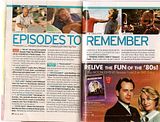
(click to enlarge)
I concur with their choices. It's an all stellar lineup:
The Pilot (J.J.),
Exodus (Damon),
White Rabbit (Damon),
Do No Harm (J.J.). Both Sawyer-centrics made the list: Damon chose
Confidence Man, J.J. picked
Outlaws. Unsurprisingly, both loved the transcendent episode
Walkabout. Surprisingly, they both also chose
...In Translation.One episode that I'm guessing just missed the list was the well titled
Deus Ex Machina. Episode titles in Season One were so beautifully chosen, I find myself drawn to interpreting each one. In literature, "deus ex machina" - the god out of the machine - refers to a literary device that is not generally much respected. It derives from the custom in Greek theater to have a god literally lowered down onto the stage. By a machine.
It was the ancient Greek equivalent of a
WTF! ending. Aristotle considered it to be a cheat, because nothing the audience had already seen prepared them for it.
"It is obvious that the solutions of plots too should come about as a result of the plot itself, and not from a contrivance." - Aristotle, PoeticsBut despite its bad rep,
WTF! is not an unusual method of turning around a story that has gotten itself lost. It's not always a bad thing. I mean, without gods coming out of machines, where exactly would LOST be?
And we all ended up liking that twist, didn't we? Even Aristotle had to admit it was often unavoidable.
"it is probable that improbable things will happen. - Aristotle, PoeticsThe sepulchral light that lit up the hatch window felt like a sign to the bereft and desperate Locke. But that wasn't a god down there. It was only Desmond Hume, buried under the earth with his button to push, shining up a light to see what was causing all that racket.
Locke was connected to Desmond before any of us even knew that Desmond existed. At times it almost seemed like Locke had become the hub in the connective wheel.
In just the few short weeks since the crash, Locke had turned Guru. We'd watched Walt seeking him out, admiring him. In these episodes, Locke deepened his connection with the young grasshopper.
To Walt's amazement, Locke knew that he'd burned his father's raft, and to Walt's relief, the secret was safe between soulmates.
Locke knew it was Claire's birthday. He even gave her a present! A cradle for the baby who would soon be born, another kindred spirit to Locke - the son of a child mother who hadn't wanted to keep him.
Locke was so tapped into the Island grapevine by this point, he was even giving advice to Shannon on her love life.
But the person Locke had become most closely connected to was his devoted acolyte, Boone, whose faith in Locke was about to become a waking nightmare.
They were a kind of Master and Apprentice ... except that it wasn't clear what exactly Locke might be a master
of.
Every day Boone went out into the jungle with Locke and dug holes and pounded fruitlessly on the sealed up hatch. He helped him build a trebuchet.
"It's called a trebuchet because it's a trebuchet." - John Locke
Boone gave a lot more than just blood, sweat and tears to Locke. He put up with a constant stream of crazy shit.
But more than anything, Boone
listened to the old coot. And Locke had a lot to say. He filled their working days with long dissertations on The Meaning of Lost Island.
The Island had made him whole. They were supposed to be on The Island. The Island would tell them what it wanted them to do. The Island had given everyone a new life. The Island would test their commitment but if only they kept faith, the Island would show them how to open the hatch. Everything breaks if you apply enough force.
Boone knew Locke was pretty much batshit insane. Still he couldn't help but absorb some of his rabid intensity. It was all SO clear to Locke. Maybe it was that certainty alone that convinced Boone to follow his leader.
Straight over a cliff.
Before that tragedy, Locke and Boone, for their brief wrinkle in time together, had become a kind of father and son.
And father and son, as we have seen time and again on LOST, is a connection that matters. A lot. Daddy issues were equal opportunity in this story. As Locke told Walt, everybody's got a dad. It's a universal connection. Everybody's got a mom too, of course, but on LOST mothers don't seem to be quite as important. Unless they're filled with heroin.
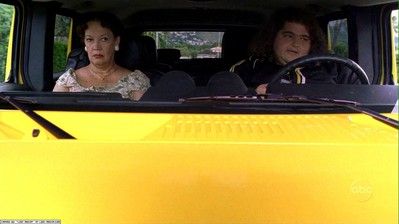
Mostly on LOST, it's the Y chromosome that counts.
Locke had been so hungry to have a real, live dad all these years that he was a sitting duck for the slimy conman who claimed to have donated a sperm on his behalf 40 years before. All it took was some drinkin' and some shootin' and Locke was ready to hand over his internal organs. Anything for dear old Dad.
Jin had a sweet, wise father, loving and forgiving - a true anomaly on LOST.
But to make up for it, he had the father in law from hell, a mean sturgeon faced psychopath who had Jin by the balls and didn't plan on ever letting go.
Sawyer's father was a pair of pointy toed, high heeled cowboy boots.
That's all we ever saw of him, making it all the more sadly ironic to hear Sawyer referred to so often as a cowboy, or to hear him tell someone to "cowboy up". The cowboy who killed himself on his little boy's bed was an animal.
And Sawyer had been chasing the wrong man rather than deal with the fact that the enemy he should have been hating on all these years was his own daddy.
Since this is a story of connections, it stands to reason that the connection between Locke and Sawyer would be made through a Dad.
The same coldblooded con man who had snatched Locke's kidney was the same ruthless creep who had conned this little boy's family into oblivion.
We knew nothing about any of that then. But all the seeds had been planted for the story that was yet to unfold.
Perhaps the most memorable connection made in these episodes was the one forged between Sawyer and Kate in one of Lost's signature scenes from Season One - the great "I Never" fireside chat from
Outlaws, about which J. J. Abrams had this to say:
"I loved the dynamic between Sawyer and Kate. It proved to me that two people talking in the jungle could be as compelling as running from a monster." - J. J. Abrams
"I Never" is a drinking game that lets you tell the things you've done by only admitting to what you have not. It started light and teasing. The tomboy had never worn pink. The redneck had never kissed a man.
It was just a game, a way to catch a much needed buzz after weeks of staggering hardship.
Quickly, the revelations turned personal. Kate had never had a one night stand. Sawyer had never been in love. Kate had been married, for at least a New York minute.
What made them slip into such sudden, unexpected intimacy? Why were they telling each other these things? They began to needle one another.
She teased him about chasing a boar. He challenged her for wanting to take off into the night and be alone with him.
She lashed out about his letter. She was teasing, but it cut deeper than she'd thought.
He asked her flat out if she had ever killed a man. She looked him in the eye and told him yes.
Darkly, brokenly, he confessed that he had too.
There was silence, maybe shock, that they'd exposed themselves so utterly to one another. In the morning they were back to snarking and bitching at each other,
but the encounter had left its mark. For reasons we have yet to discover, the writers had decided to give this love story the slow burn.
Kate was there to witness the moment when Sawyer let escape the boar he'd gone into the jungle to hunt. She didn't know exactly what she was seeing when it happened, had no idea yet of the thing that was haunting Sawyer, but she could not look away. She was connecting to him. And we would see this connection continue to build, in ways big and small, past and present, on Island and off it.
In the Season Five finale, we saw another connection. Of all those he touched, Jacob chose only two children. He helped one child to see that, for her, crime might just pay.
And he encouraged the other child to hold tight to his anger and pain.
Why did Jacob choose only two children and why did he make a point of teaching them exactly the
wrong life lessons? It was almost like he wanted to be sure they both ended up getting lost in the lives that were ahead of them, like he wanted to make sure they grew up to be a couple of
Outlaws.The "I Never" scene was notable, not only for Season One but for LOST in general, because it contained something very rare for this show - actual communication.
Connection after all takes language. And asking questions, giving answers - that's something that doesn't happen too often on LOST.
Jin let himself be beat almost into brain damage rather than signal to Michael that he had not burned the raft. Miscommunication leads to assumptions.
Watching Sun and Jin wrestle over her bathing suit on the beach, everyone assumed that Jin was a brutal abuser. No one suspected that he was instead the gentlest and most trustworthy of men.
Sun could have helped connect him to the larger group if she'd only revealed she spoke English, but Sun, for reasons known only to her, was hoarding the power of language to herself.
Sun and Jin parted bitterly in this episode, a reminder of just how fragile our connections to one another really are.
At the end of this episode, Hurley also loses his connection to the word. When the batteries on his CD player run down, he takes off the headphones with calm resignation. It was a poignant moment, not least because it had been inevitable for some time. It was a powerful reminder of just how alone and disconnected the survivors really were.
... In Translation, another great title, might be taken to mean "(LOST) ... In Translation". Or perhaps it's a reference to
"In Translation" by James Merrill, a poem about (I think) a child putting together a jigsaw puzzle that doesn't seem to know what picture it wants to be.
Lost, is it, buried? One more missing piece?
But nothing's lost. Or else: all is translation
And every bit of us is lost in it.
- James Merrill, "In Translation"There is a scene in
... In Translation where for a minute we are inside Jin's head, listening to the quarrels of the people around him, not a word of which he can understand. We get a chance to experience briefly what it has been like to be Jin. The voices are actually the soundtrack being played backward in that scene. It's very short, and it's the only time Jin's language problems ever gets that much consideration, but it brings home the point. Without language, Jin is disconnected, as any of us would be.
The Island has its own language, and not just the one Locke is trying to hear. When Sawyer chases the boar into the jungle, he is suddenly engulfed in a swirl of hissing, whispering voices.
Like Sayid in
Solitary, Sawyer can't hear most of what the whispers are saying. However if only he had the the proper decoding audio software, he could have heard them saying
a lot of creepy things, like "I knew he was American" or "He's been in a plane crash" or "Hide against the bushes" or "I'm sorry I'm sorry I'm sorry". The voices seem to be talking about Sawyer as he stumbles around mesmerized and confused:
Female Voice: "Maybe we should just talk to him"
Male Voice: "No if he see us it will ruin everything"
Male Voice: "What did he see?"
Female Voice: "They could help us"
Male Voice:"Can't trust"
Male Voice: "Come back around"
Sawyer's whispers differed from Sayid's in that there was one clear phrase repeated in the middle of the otherwise indecipherable murmurs. There were the dying words of the innocent man Sawyer wrongfully murdered in cold blood, to his own immeasurable horror.
"It'll come back around."
Karma. The ring of birth and death that never ends, that none escape.
The incessant, inexorable wheel of causation and consequence.
After watching Sawyer's tragic tale in
Outlaws it felt like Sawyer's soul was doomed to damnation. But no moral quandary on LOST is ever that clear, especially not when Sawyer is involved.
On his first pass, we saw that Sawyer hadn't been able to bring himself to shoot the shambly old Yank, the nice enough dude who only wanted to cook him up some hot shrimp, half price. He ran. His soul would have been saved, he could have gone home with his conscience clean.
Except that he had the misfortune to run into a certain sozzled Boston doctor, in a bar bathed in an almost beatific light, who convinced him to get on with his business, and put that bullet into the man he thought deserved it, and finally get to read the letter that Jacob had helped him write. What was it with Jacob and his emissaries giving Sawyer very, very bad advice just when he was at his most vulnerable?
Sawyer's story, in
Outlaws as in
Confidence Man, is a black diamond of exquisite moral contradictions.
No child in the Lost-verse has ever been more grievously harmed than Sawyer. But the murder he committed was the act of a grown man.
He had been conned into committing the murder, a karmic justice right there. We saw the horror and regret break instantly across his face when he realized what he'd done. But he couldn't have ever
been conned if he hadn't been nursing evil in his heart.
He remains haunted, by the evil he has done and the evil done unto him.
In the years since, we have come to see that there is a world of good inside Sawyer, so what does his story mean? How are we to take it?
After freeing the boar Sawyer seemed to feel lighter, happy again, back to needling Lord Jack. Did that mean his guilt had been exorcised? Is it ever possible to be free of that kind of guilt?
Or is Sawyer trapped forever in a perpetual loop, both victimizer and victim, a creature inspiring equal parts of pity and fear? For Sawyer, will it always and inexorably come back around?
Karma is not an easy concept to understand, and it's no easier when we're all speaking the same language. Sometimes it's a relief to just dispense with language entirely.
That brings us to the subject that is near and dear to the hearts of all original flavor LOST fans. When you really want to get lost on LOST, the thing to concentrate on is the
Numbers. Mathematics is a unversal language, and Numbers are the indispensible building blocks of mathematical connection.
Hurley's first great centric was a classic. Actually I think this one could have gone on Damon and J.J.'s list as well. The famous
Numbers first showed up on Hurley's lottery ticket. After that, they'd be popping up all over the place. At the end of the episode, we got an eerie glimpse of them stamped into the lid of the unopened hatch.
But that was just the beginning. In later months and years, we'd see them on the medicine vials.
On a girls soccer team.
On the odometer of Hurley's Camaro.
On Eko's magic stick.
The Numbers are the subject of endless fascination and speculation. LOST attracts a special breed of intellectually gifted interpreters, as any online fan knows. The things they have discovered about the numbers is truly awe inspiring. You might be interested to know that the numbers hold a valid Diophantine relation, that they appear in a mathematical relationship to the Flavius-Josephus sieve ... and, what's more, if you hold the ALT key in notepad/wordpad (font type must be "System") and type the numbers 4 8 15 16 23 42, and then release ALT, you will get the Greek symbol µ (Mu) which is the name of the lost continent Lemuria, which is similar to Atlantis!Don't try and tell me
that's an accident!
But what do they mean to we of little brain? Anything? In a May 2008 interview with Kristin of E!, Damon Lindelof seemed to hint that the infamous Numbers didn't actually mean a dang thing.
"There are some questions that are very engaging and interesting, and then there are other questions that we have no interest whatsoever in answering. We call it the midi-chlorian debate, because at a certain point, explaining something mystical demystifies it. To try and have a character come and say, "Here is what the numbers mean," actually makes every usage of the numbers up to that point less interesting....You can actually watch Star Wars now, and when Obi-Wan talks about the Force to Luke for the first time, it loses its luster because the Force has been explained as, sort of, little biological agents that are in your blood stream. So you go, "Oh, I liked Obi-Wan's version a lot better." Which in the case of our show is, "The numbers are bad luck, they keep popping up in Hurley's life, they appear on the island." ... But if you're watching the show for a detailed explanation of what the numbers mean—and I'm not saying you won't see more of them—then you will be disappointed by the end of season six."

You know I just don't think that explanation could ever be acceptable to the kind of obsessives who managed to connect the Numbers to the lost island of Atlantis via their keyboards. So in 2009, again with E!, Damon took another crack at it and this time he did better:
"Here's the story with the numbers. The Hanso Foundation that started the Dharma Initiative hired this guy Valenzetti to basically work on this equation to determine what was the probability of the world ending in the wake of the Cuban Missile Crisis. Valenzetti basically deduced that it was 100 percent within the next 27 years, so the Hanso Foundation started the Dharma Initiative in an effort to try to change the variables in the equation so that mankind wouldn't wipe it itself out."
Muuuuuuch better. It's important to give the literal minded among us something to connect with. Personally, I'm fine with swimming around in a sea of vague multicultural free associations. I enjoy it. When Michael started rhapsodizing about the architectural genius of the Flatiron Building in Manhattan, it didn't just strike me that the Flatiron was a triangle - LOST's favorite shape - but I also recognized right away the location:
23rd Street!
It doesn't mean anything, but gee, it's kinda cool. Once you know the Numbers you can dig out Easter Eggs all over the place.
The numbers add up to 108 - the number of Penelope's suitors when Odysseus was away, the number of names for each Hindu god, the number of beads in a Buddhist prayer
mala, the number of times the bell is rung for Japanese New Year and in China, the most fortunate of lucky numbers.
Hurley wore a medallion on his neck with the Chinese symbol known as
LU, which means Luck, specifically the luckiness of Prosperity.
There was cruel irony in that choice of symbol of course because Hurley never had a lucky day after the Numbers had made him prosperous. He became obsessed with discovering the source behind the curse. He was connected to the numbers via his pal Leonard from Santa Monica
who was connected to the numbers via his old Navy buddy, Sam Toomey.
Sam Toomey had built himself a house in the middle of nowhere, so as to be in a place where his numerical curse couldn't hurt anyone but himself. Except for his wife, Martha, who had already lost her leg - in a car crash, the night after Sam had guessed there were exactly 4,815,162,342 beans in the jar at the Kalgoorlie fair.
Despite her loss and despite Sam being driven to madness and suicide by the Numbers, Martha refused to submit to the concept of a curse. She was emphatic in declaring to Hurley that bad things happen all the time, and everyone is still responsible for making their own luck. It was a classic Fate vs. Free Will dichotomy.
It was also in stark contrast to the philosophy expressed by Christian Shephard in the bar with Sawyer.
Christian's core belief was fatalistic. Where Martha represented Free Will, Chris was a true believer in Fate. And in Curses. His slogan was
"That's why the Sox will never win the Series", a reference to the once hapless Boston Red Sox who, as of September 2004, hadn't won a world series since they'd sold Babe Ruth to the Yankees in 1920 and brought down the Curse of the Bambino on themselves.
It's an interesting reference, and maybe a clue as to where the writers true affiliation lies in this perpetual debate between Fate and Free Will. The episode was set in September, 2004, about a month before the Bambino's Curse was finally broken. On October 28, 2004, with a lunar eclipse adding a final surreal touch, the Red Sox won the World Series for the first time in 86 years.
After defeating the hated Yankees in the ALCS championship no less! After being down 3-0 and winning the last 4 straight. How's that for Fate?
What to make of it? By the time
Outlaws aired on Feb. 16, 2005, we all knew that Christian's life philosophy had become permanently irrelevant. Was that a clue that fatalism was the false path? That Fate can sometimes bring good things? Or does it mean
Free Will controls the outcome? Even if it takes 86 years to come back around.
Hurley's quest to solve the secret of the Numbers had been in vain, until he finally met up with the crazy French chick.
He was driven to find her after he'd found her scribblings of the Numbers on one of her maps. Like Sam Toomey, Rousseau had heard the Numbers beaming through the atmosphere, repeated on an endless loop over a radio transmission. Her crew had followed the Numbers to the Island, as if they were magnetized by them, and been ruined there. Meeting Rousseau was a great relief for Hurley. Finally someone who understood what the Numbers had meant for him, how it felt to have your whole life stolen from you by a string of inanimate digits.
Rousseau listened to Hurley and then she agreed. They had both been cursed by the Numbers, the mysterious integers whose power had drawn them both to this same cursed place. That was all he needed, someone to understand him. They connected with a kingsize hug.
Rousseau's belief that the Numbers were responsible for them landing on the Island sounds like an argument for
Fate again. It's a question that keeps spinning around and around. We all know by now we're not getting the answer to that question until the bitter end, if then. In this game, we just have to accept we don't know when or where they're finally going to spring the trap.
In the Bible, the Book of Numbers tells the story of the Jews as they wandered in the desert, after they had left Egypt but before they entered the Promised Land. It's also known as the Book of
Aaron, because Moses's big brother gets to play quite a prominent role in this part of the
Exodus. As always, we are never far from Biblical allusions on LOST.
"When a prophet of the LORD is among you, I reveal myself to him in visions, I speak to him in dreams. " - Numbers 12:6
Locke, the visionary, the dreamer, ended his episode in a state of despair, reduced from mystical wise man to a traumatized, unhinged child.
But the behavior we'd seen from him didn't lend itself to literal understanding. None of it made sense. How did he know why Sawyer had been out in the jungle?
How did he know it was Claire's birthday?
What spirit told him about Boone's childhood nanny, Theresa, who had fallen up and down the stairs and broke her neck doing the bidding of a tyrannical six year old Boone?
How did he know that Walt had burned the raft?
Why did he try to convince the rest of the group that unseen Others had burned the raft when he knew all along it was his little backgammon playing buddy?
What was Locke's agenda, right from the beginning? Rewatching Season One, I often feel like I'm missing something, some connection between the Locke we saw then and the Locke we saw at the end of Season Five.
There is more to Season One Locke than just a quirky old nut who likes the scenery on Craphole Island. But what?
There is a moment while Locke is building Aaron's crib. Hearing that he has made his own glue out of rendered animal fat, Claire is fascinated, as are we all, by Locke's incredible array of exotic abilities. Without tools or measuring sticks or levels or squares he has put together quite a quaint little manger for the Island's chosen one.
He explains to Claire that he is good at "putting bits and pieces together". Connecting things. Now that is the same thing all of us are trying to do whenever we watch an episode of LOST. That's the whole technique of the whole big puzzle-game. But for some reason that comment reminded me of this recent Easter Egg, one of the more in-your-face book titles we've been given during the history of LOST.
Everything that rises must converge. As we approach final landing, I don't get the feeling that all this confusion is yet coalescing into anything. Is all this dizzying complexity going to connect in the end to form one unified, transcendent reality? We are still waiting to find out. But it won't be long now.
It only ends once. Anything that happens before that is just progress.
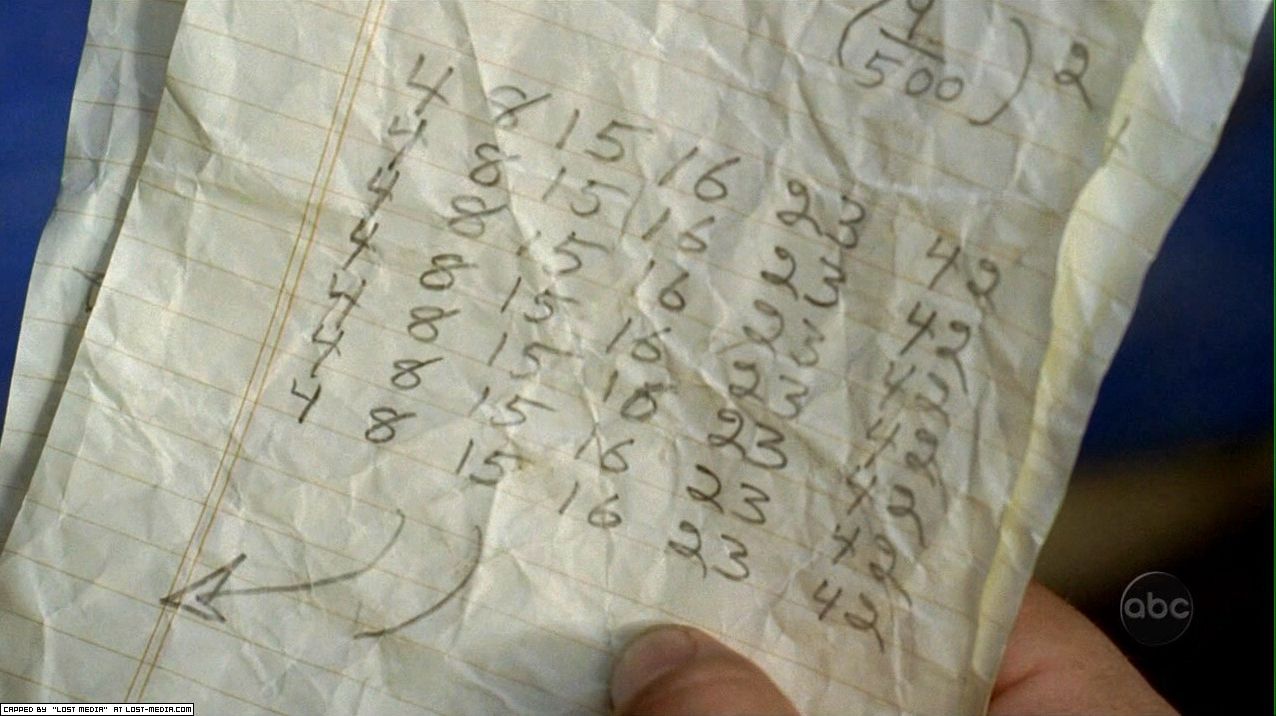

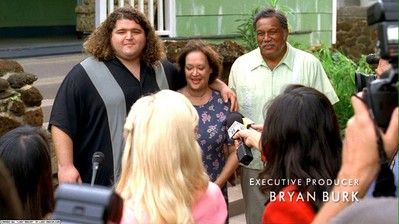
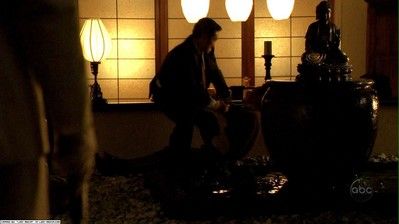
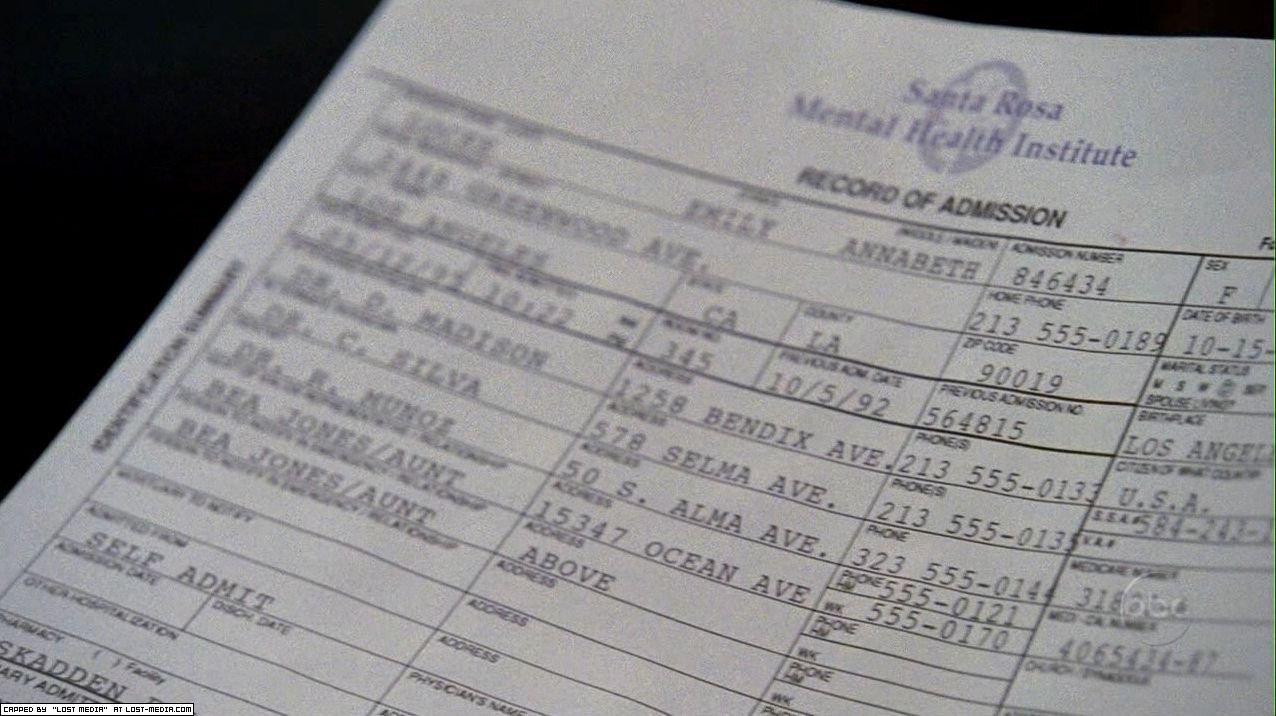
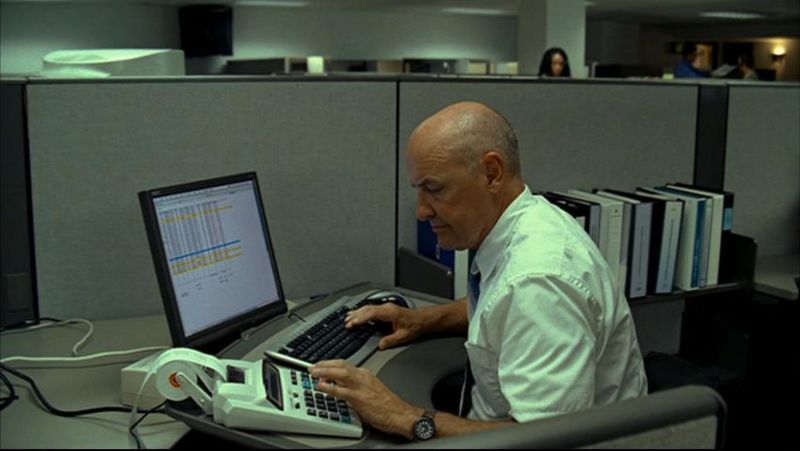
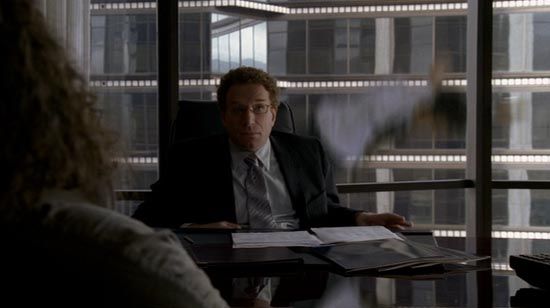
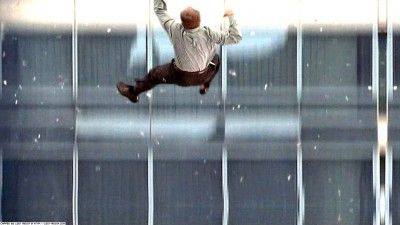
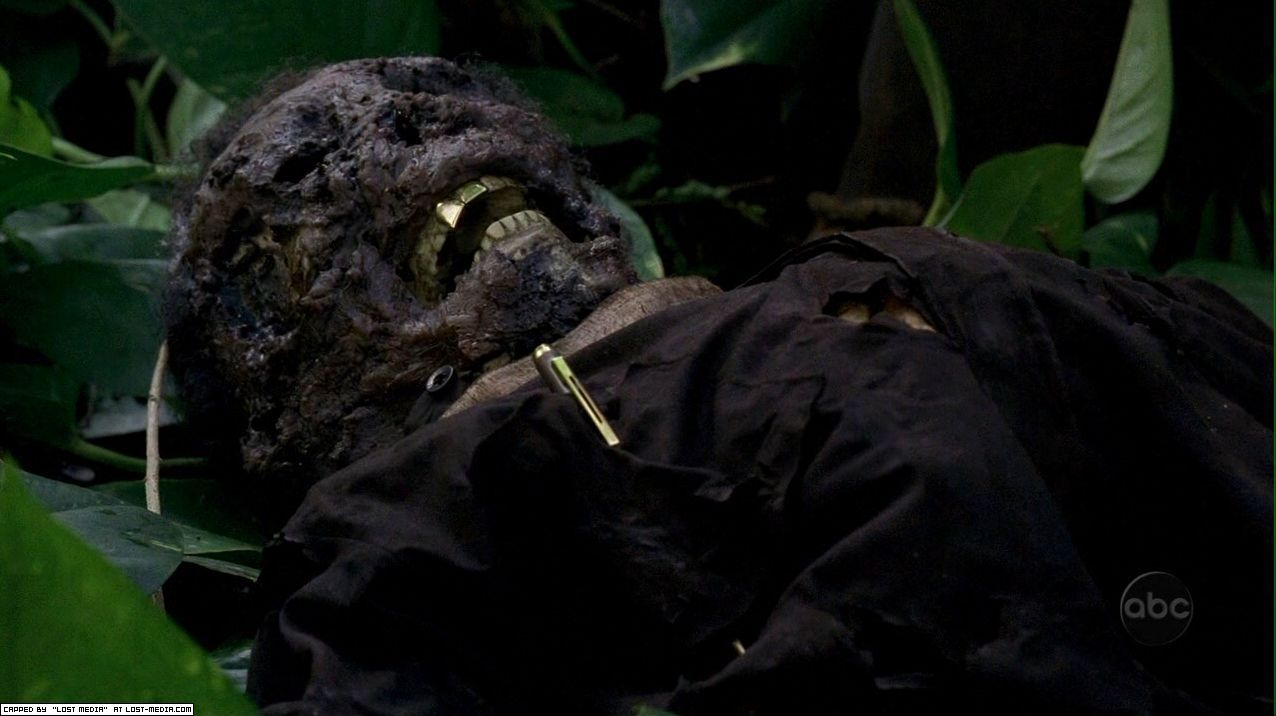
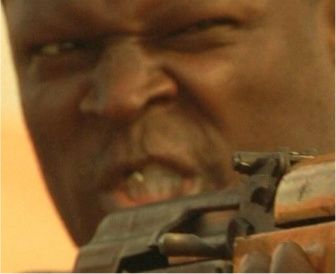
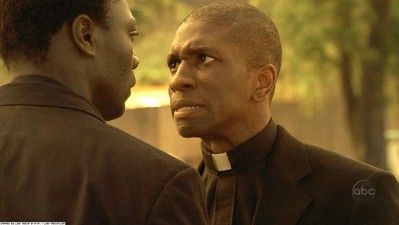
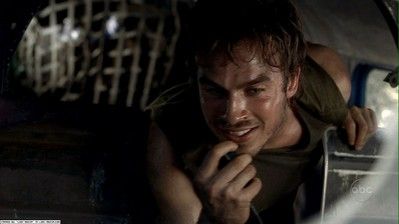


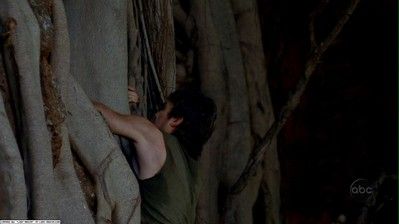
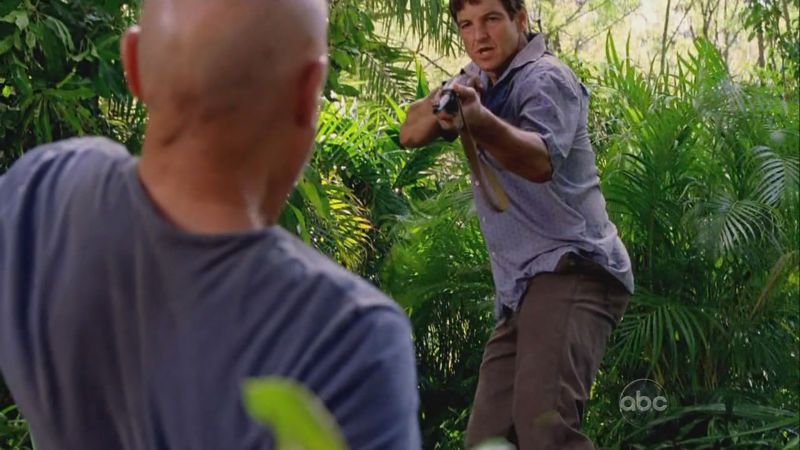
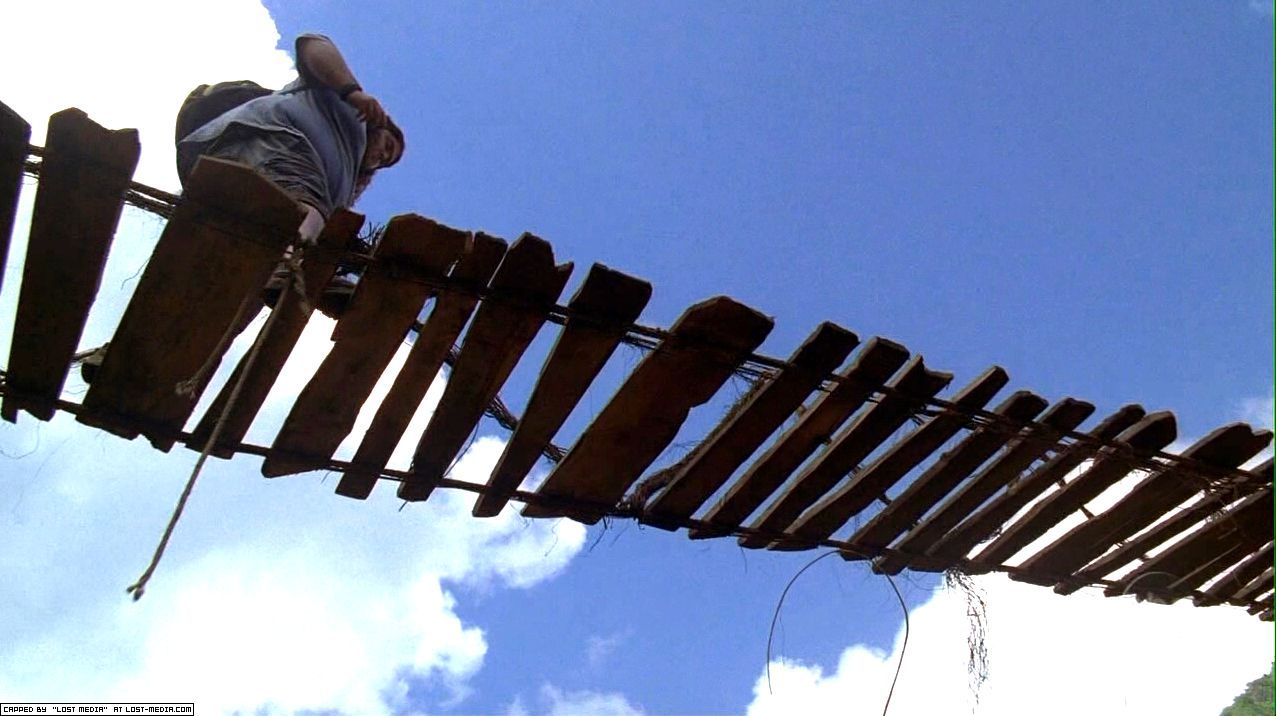
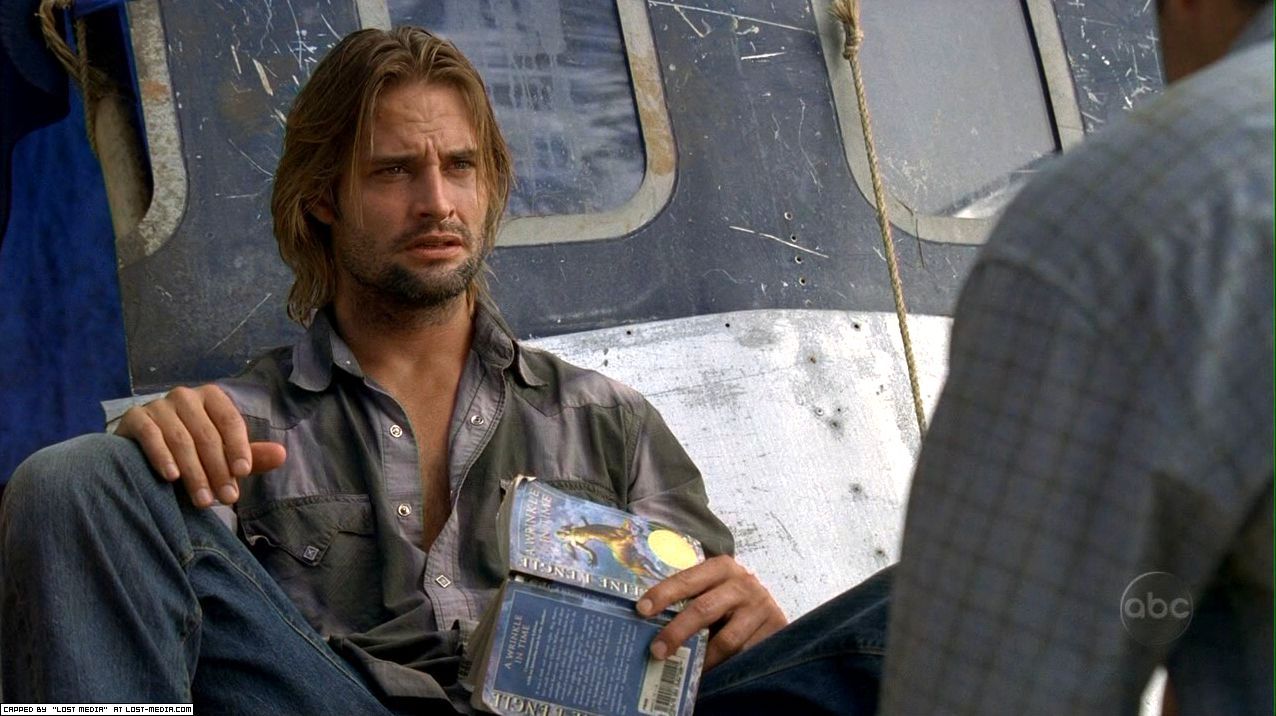
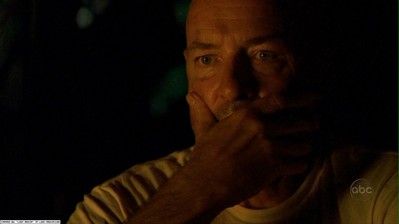
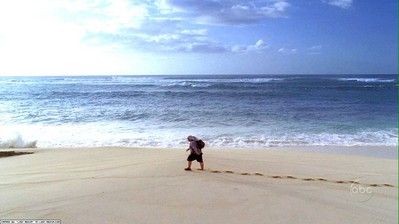
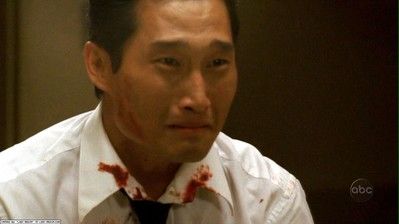
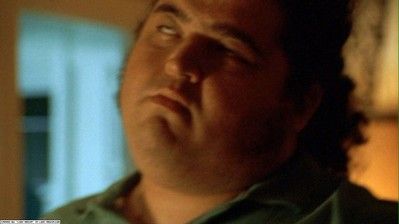
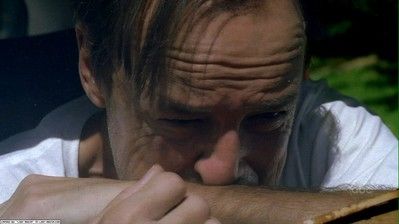
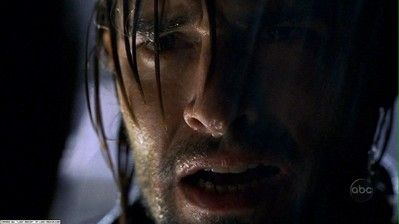
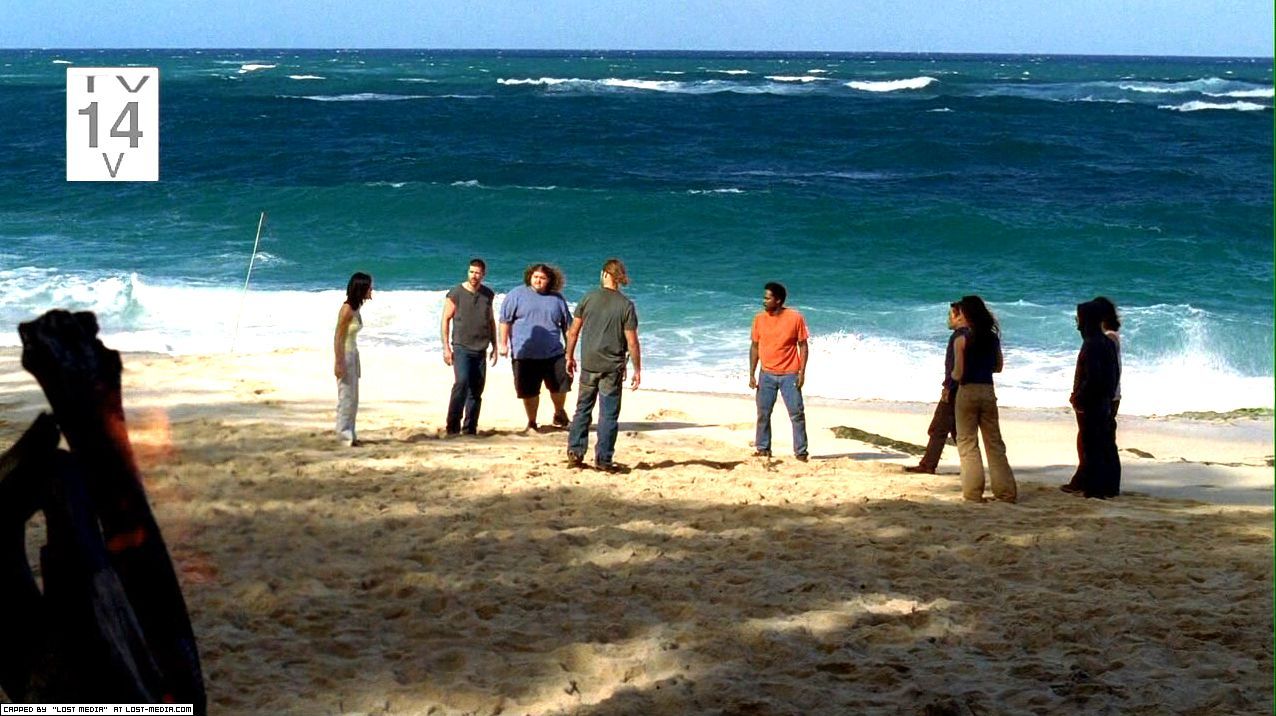
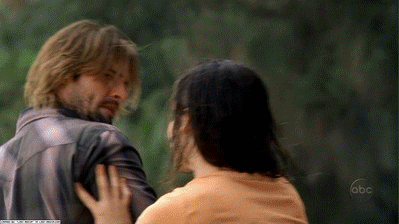
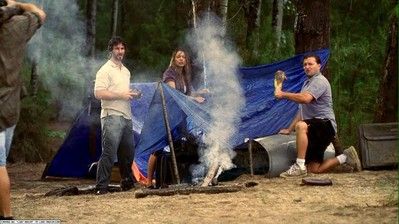
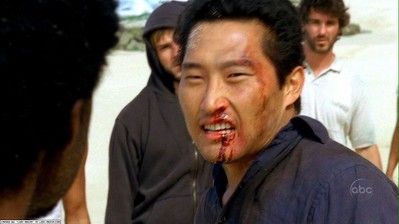
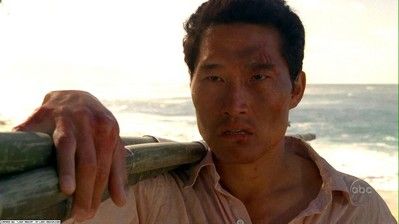
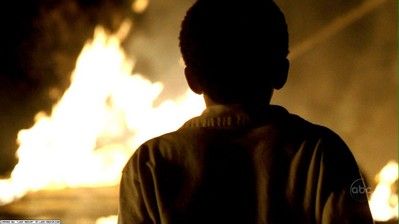
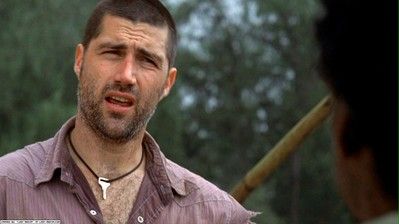
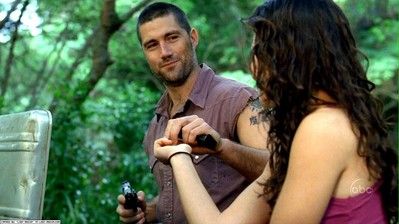
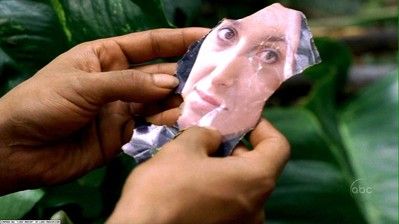
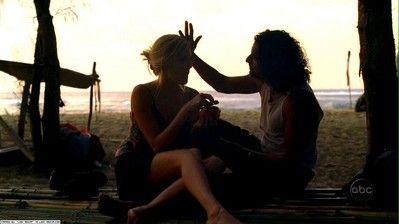
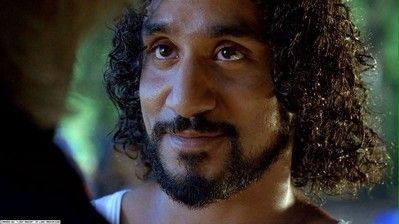
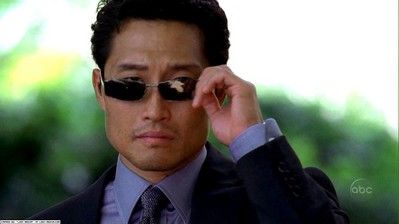
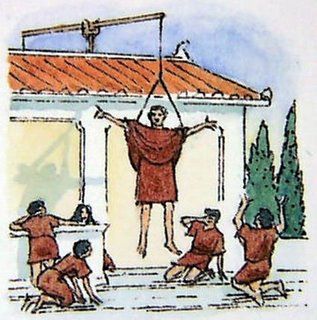
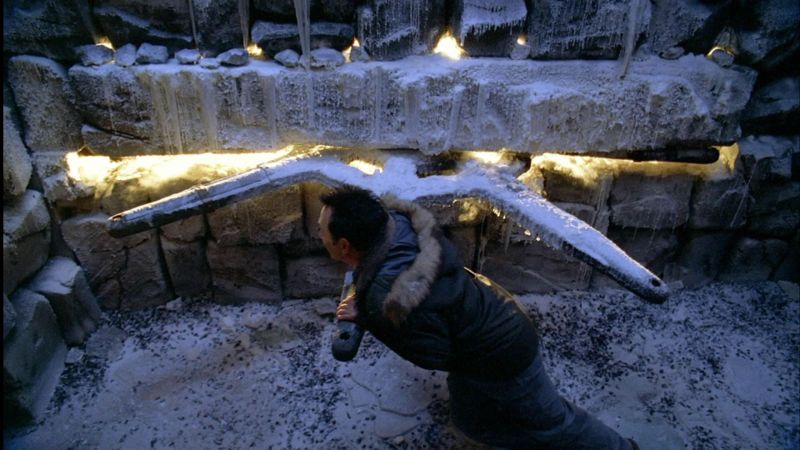
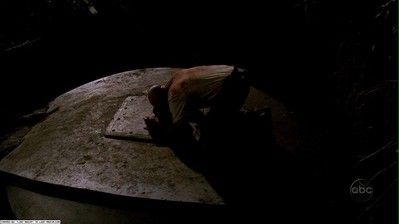
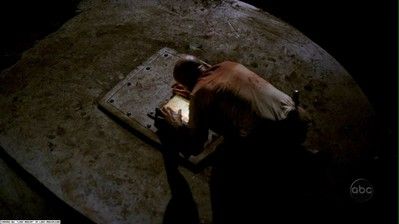
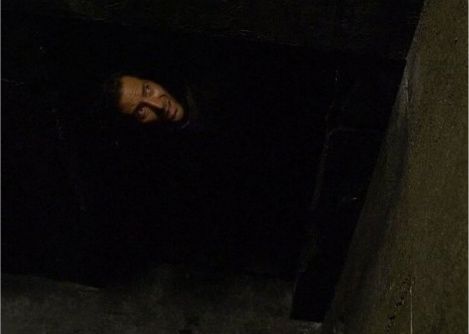
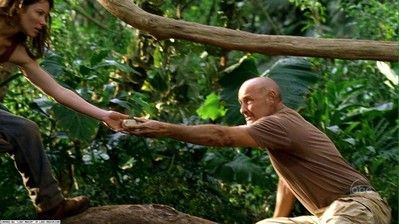
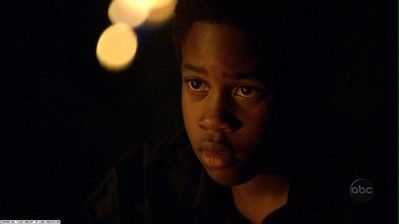
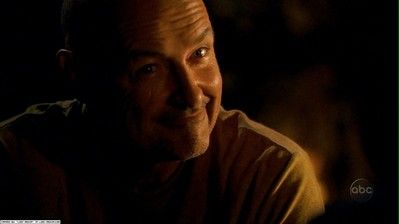
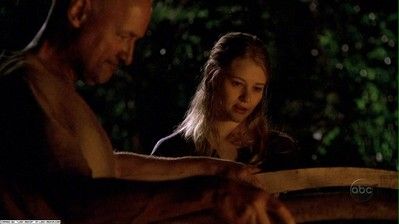
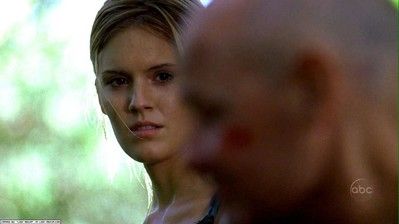
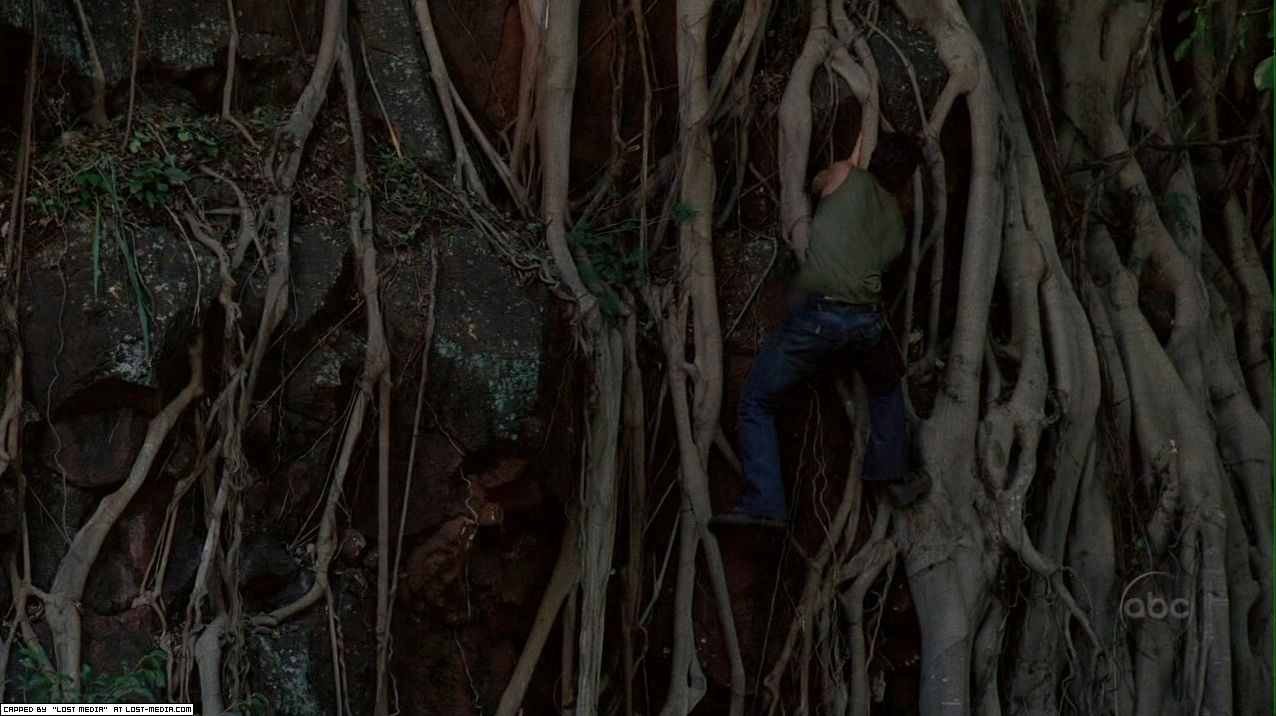
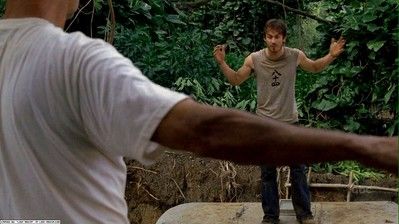

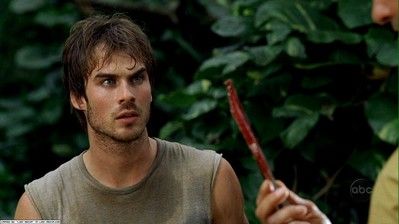
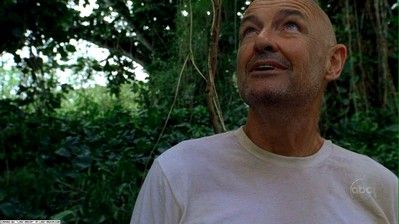
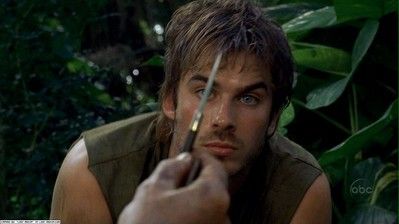
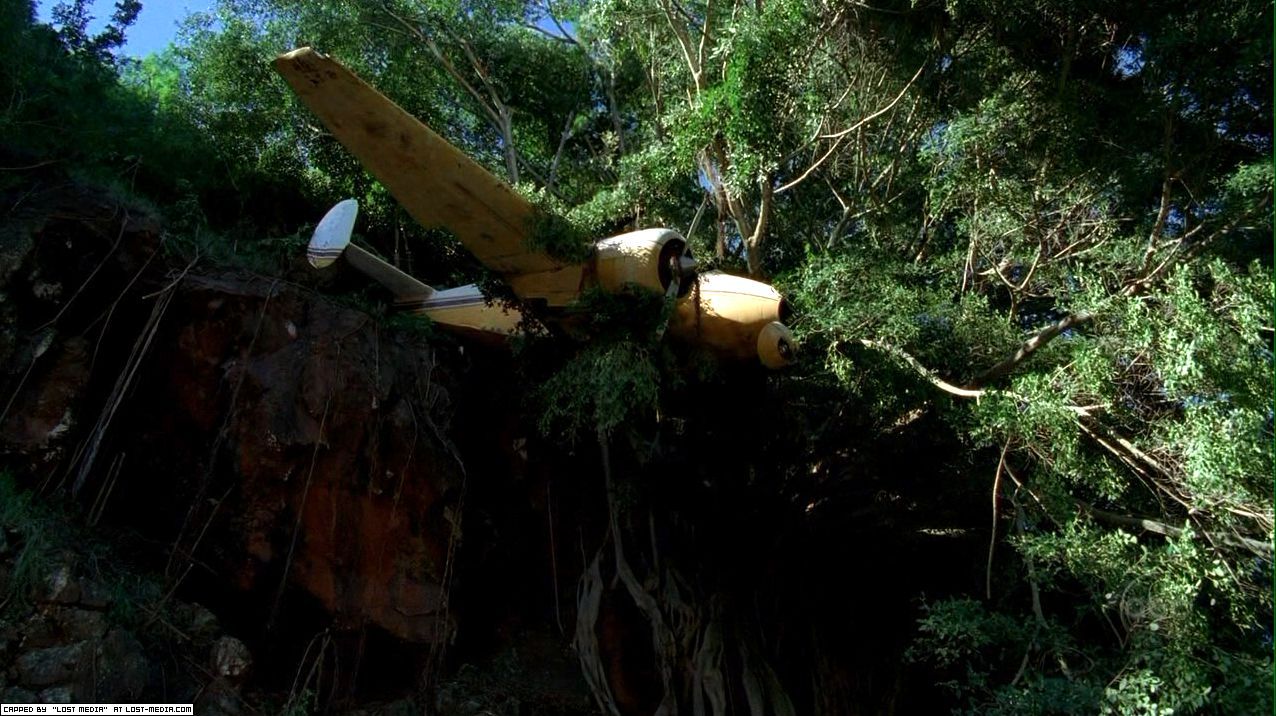
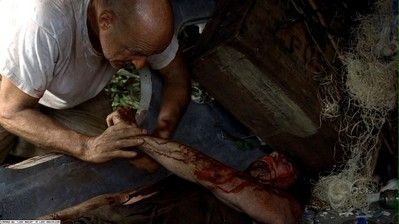
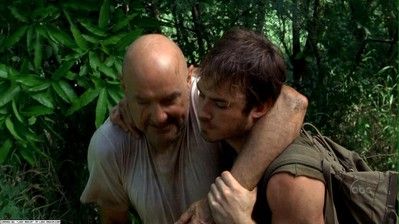
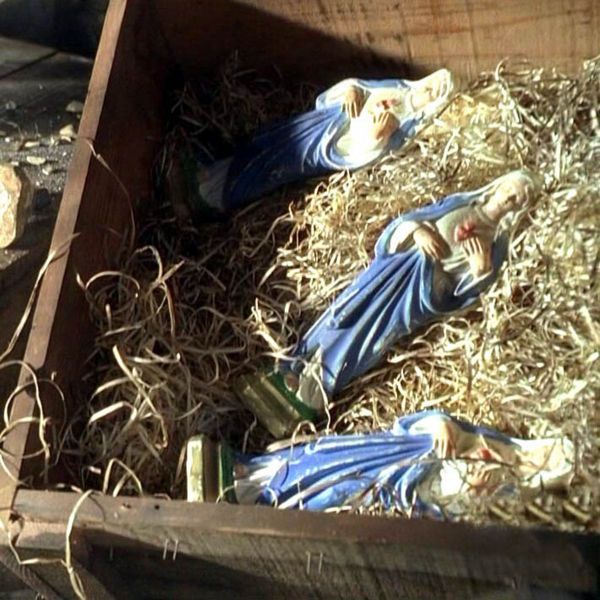

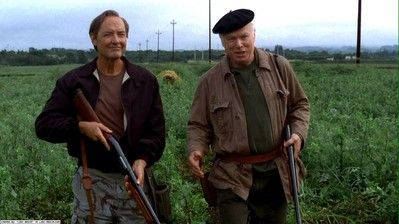
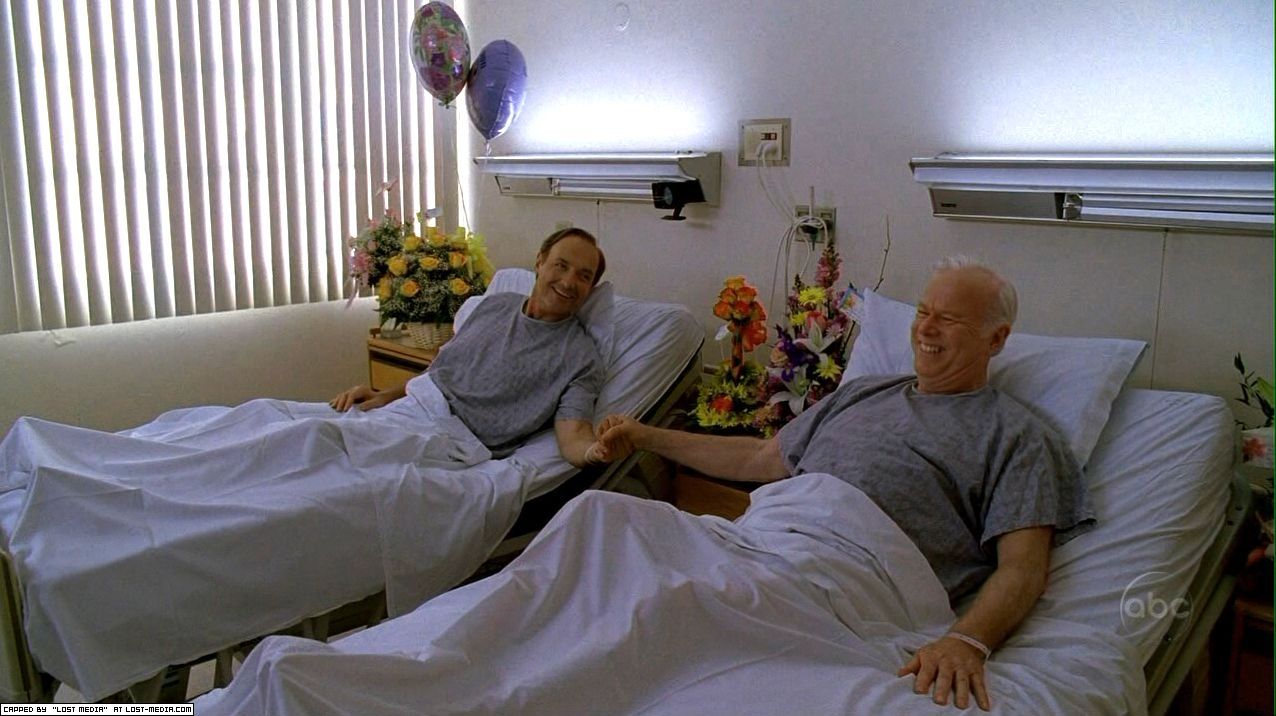
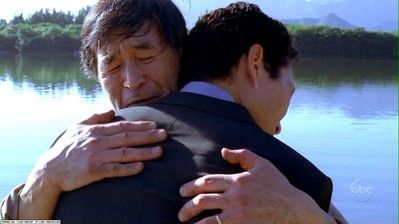
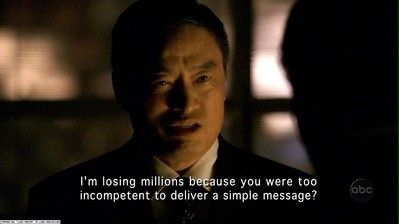
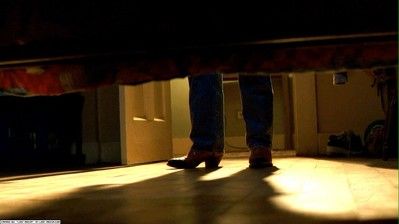
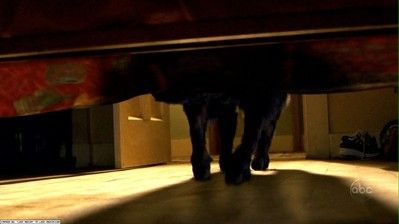
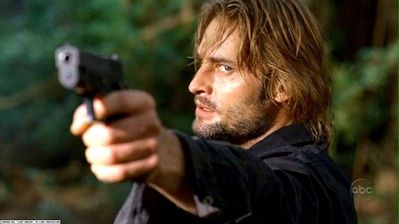
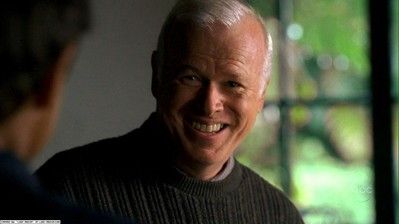
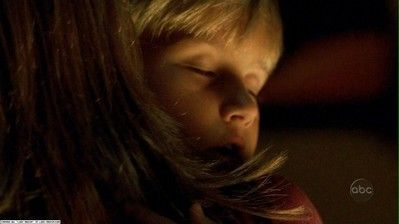
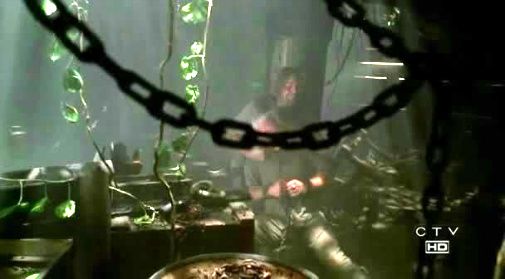
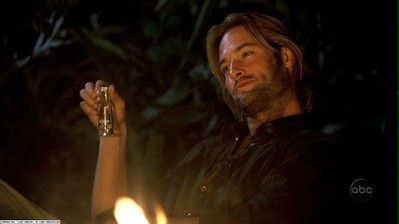
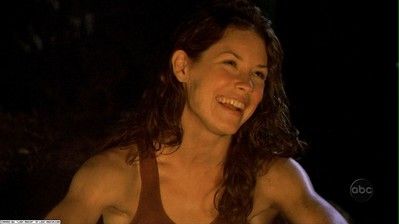
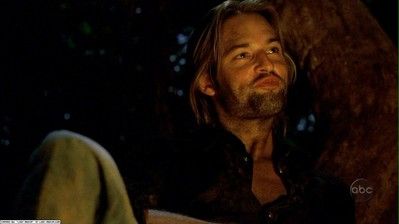
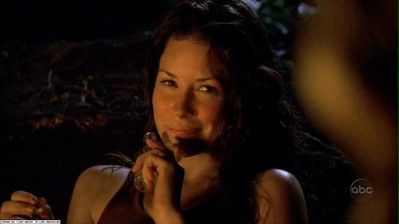
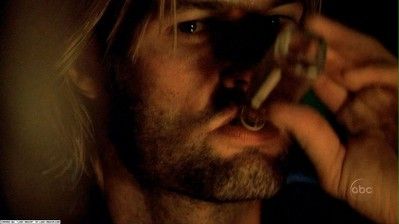
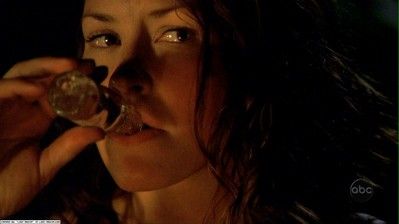
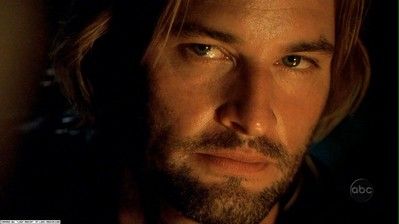
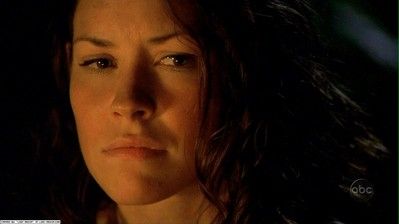
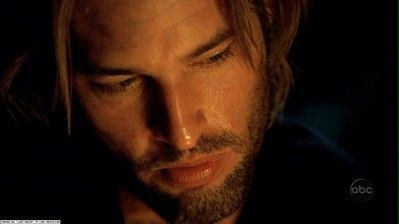
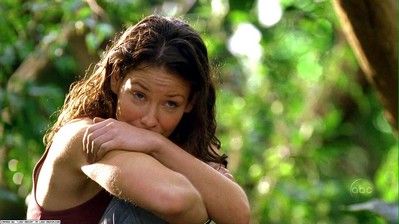
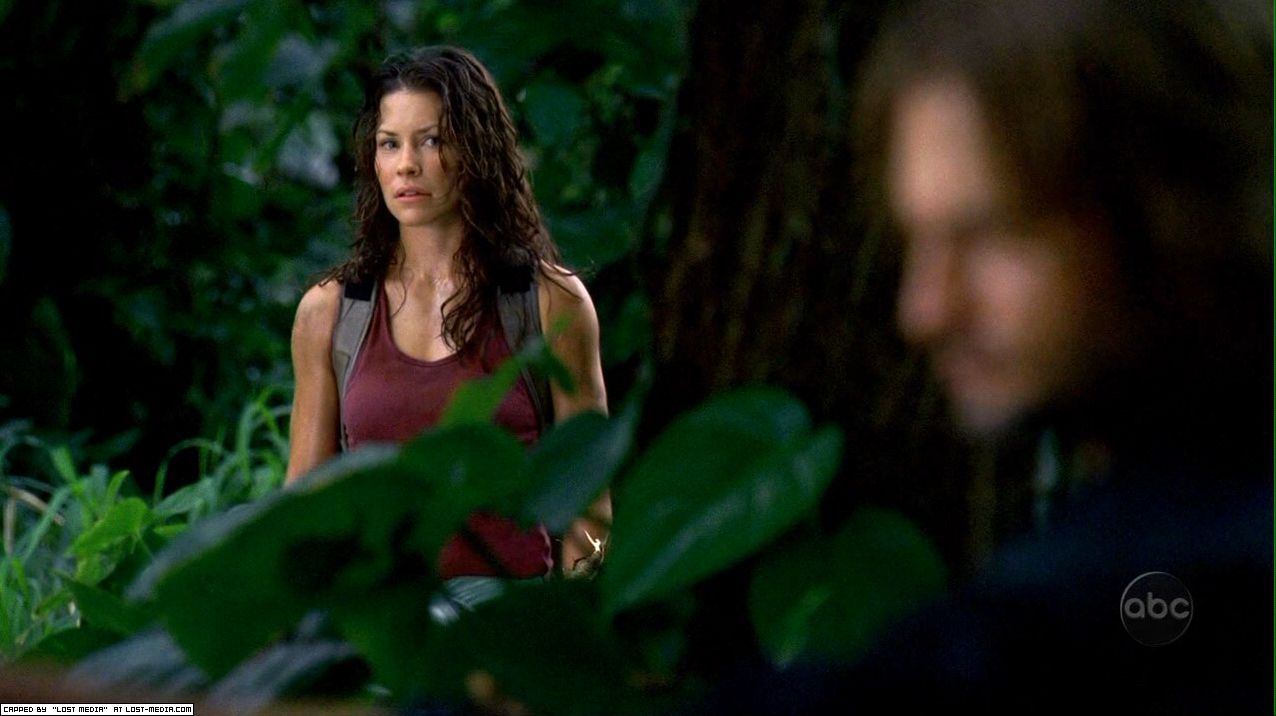
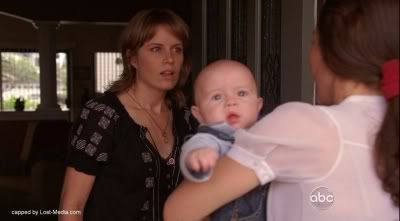
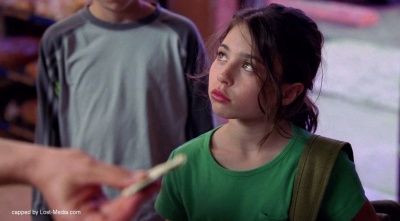
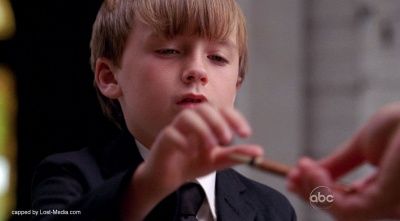
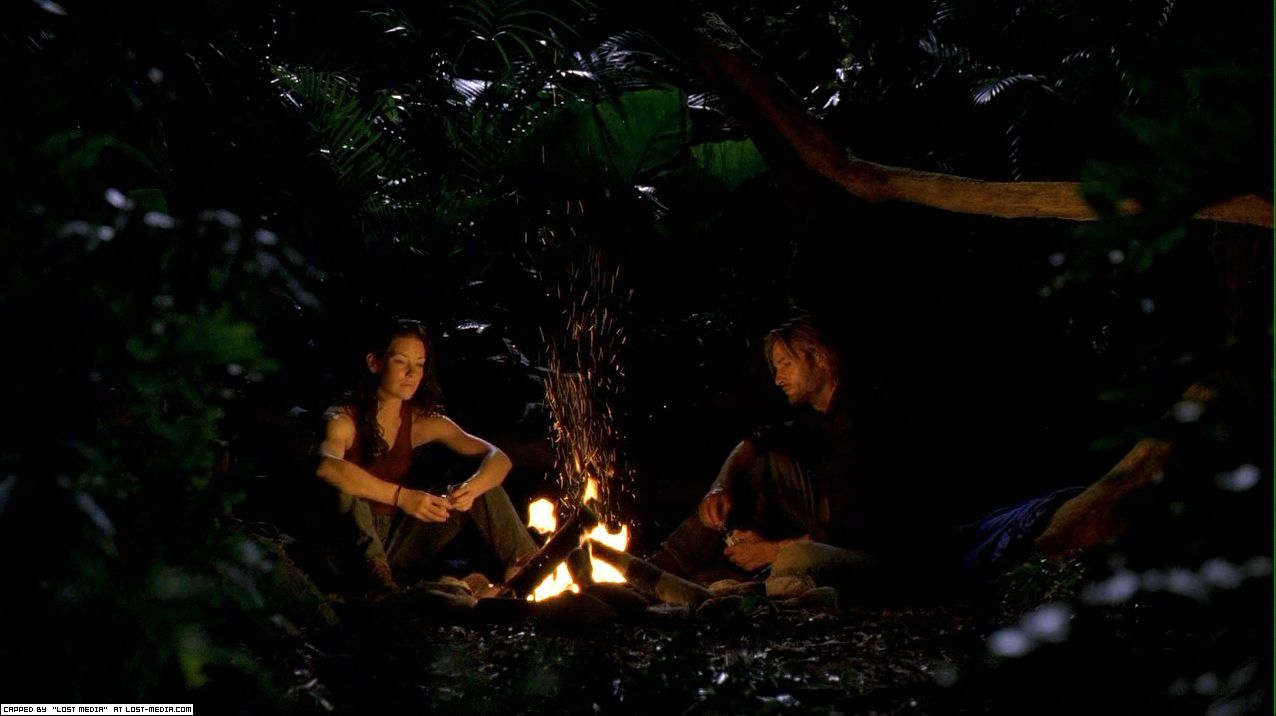
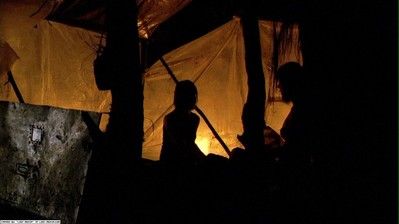
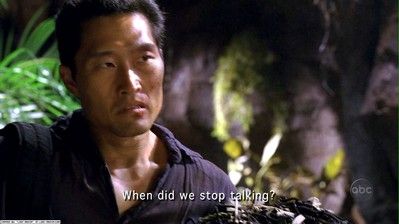
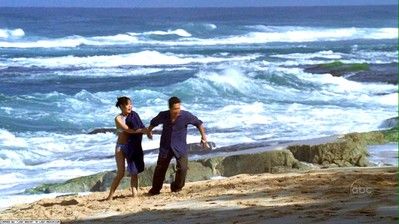
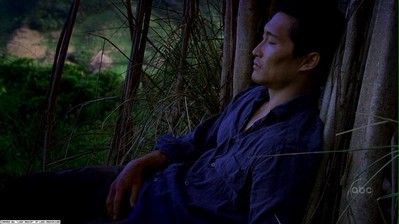
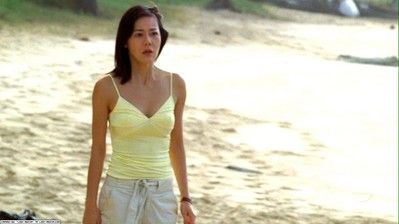
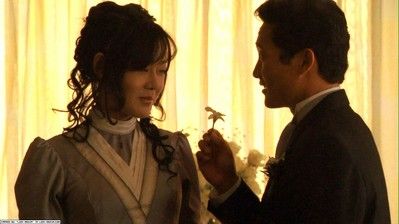
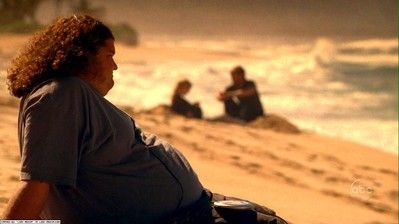
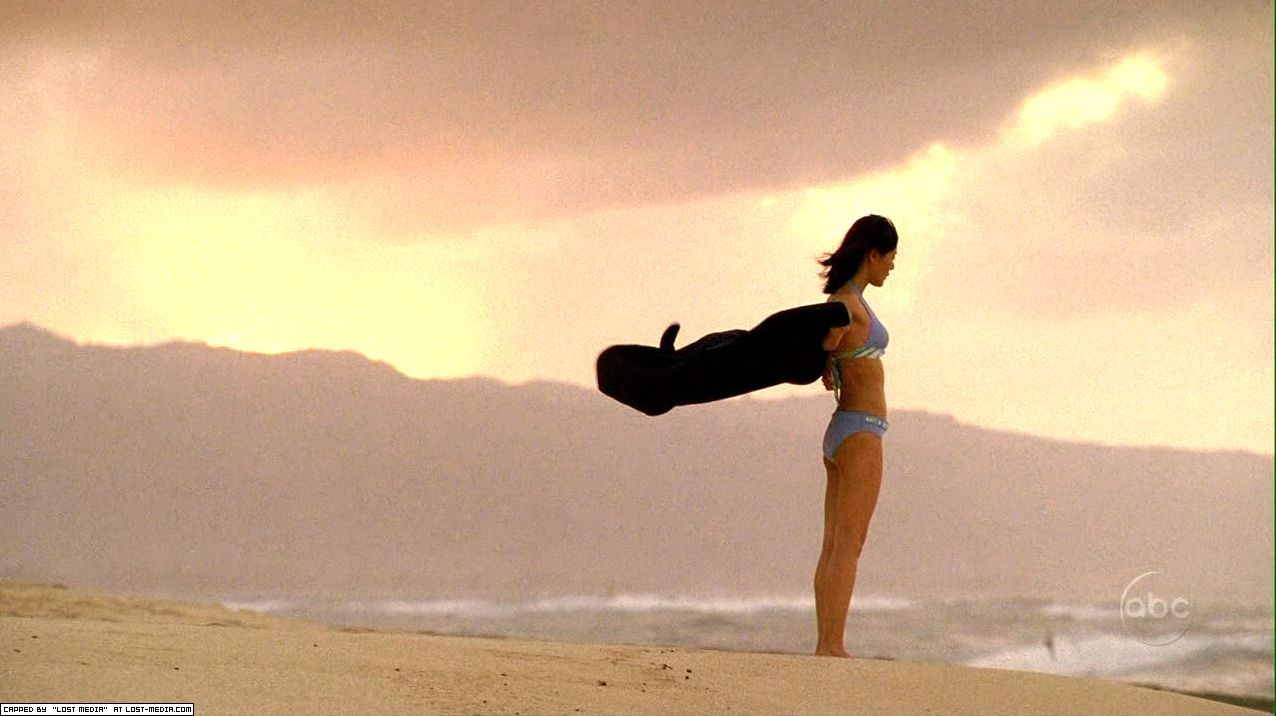
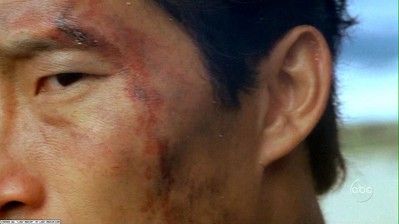

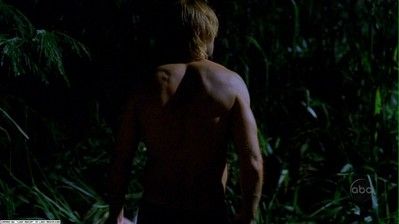
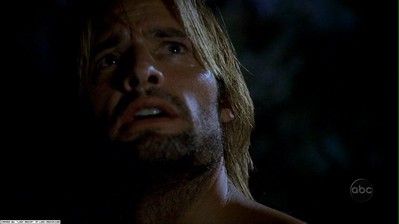
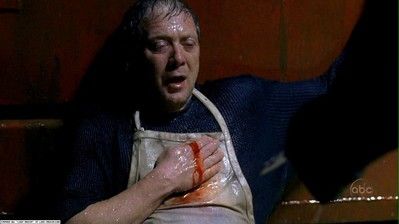
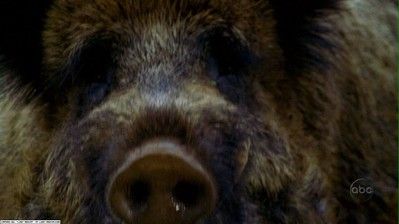
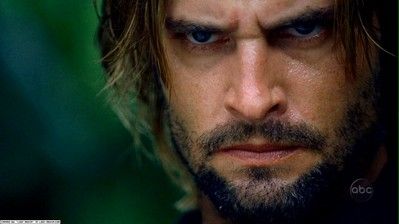
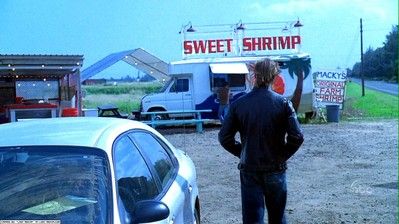
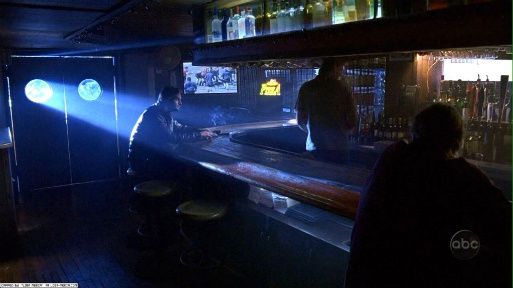
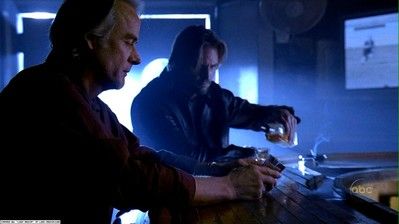
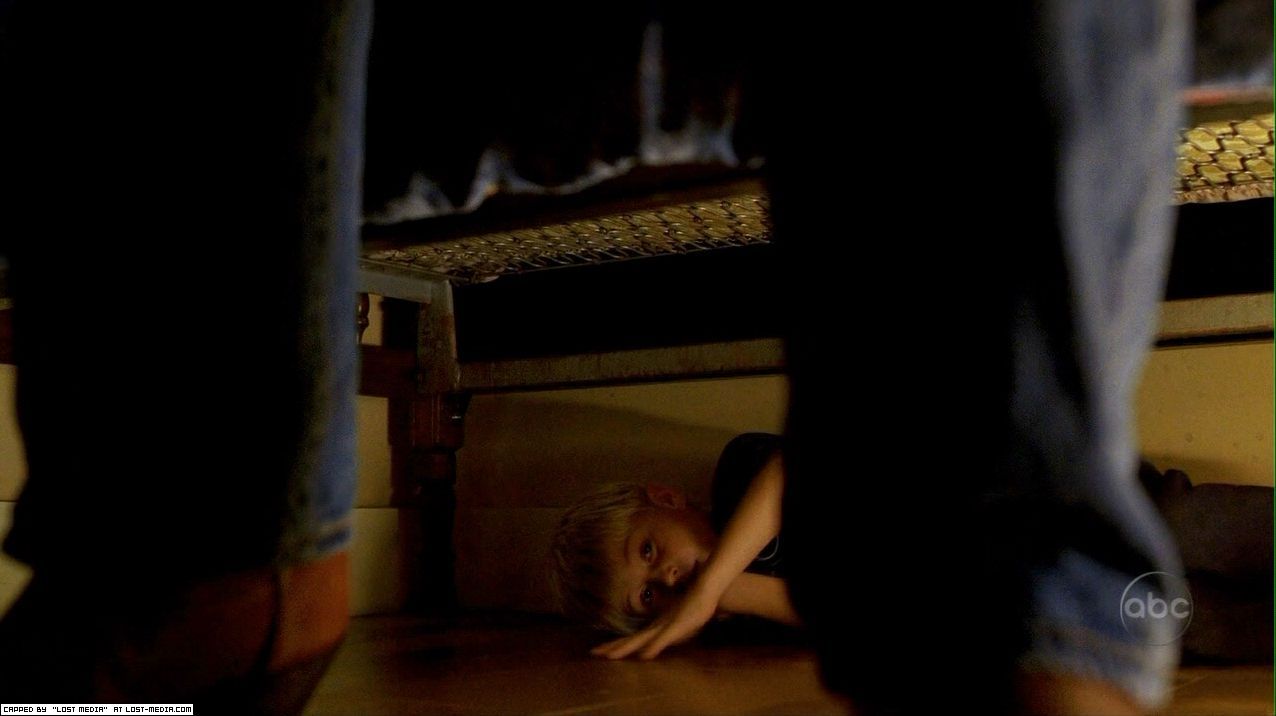
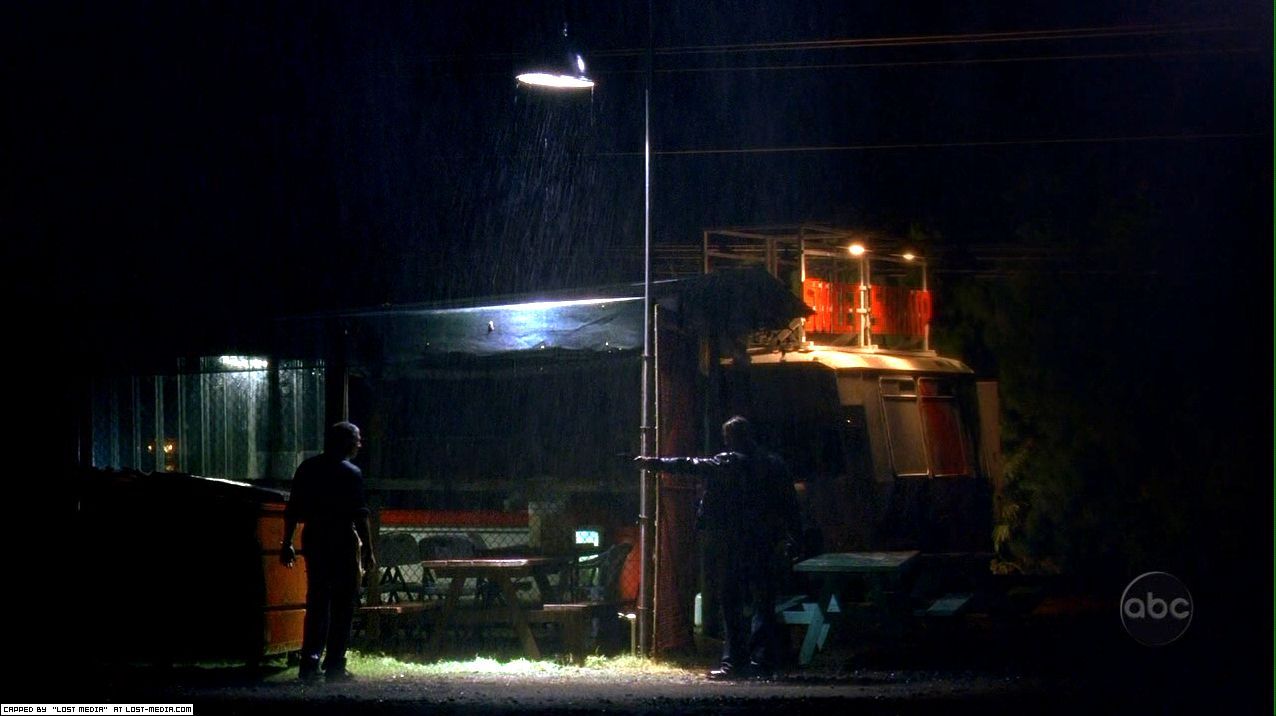
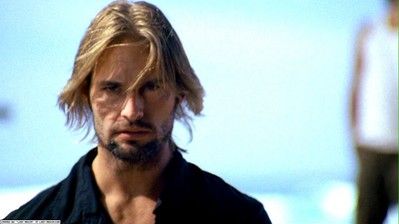
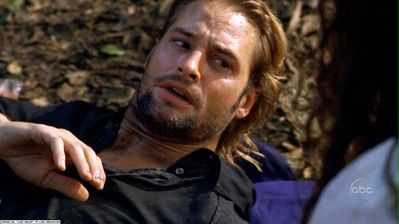
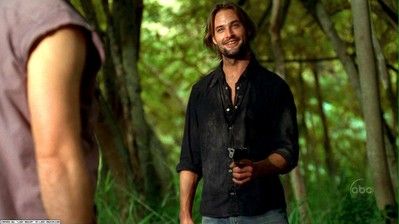
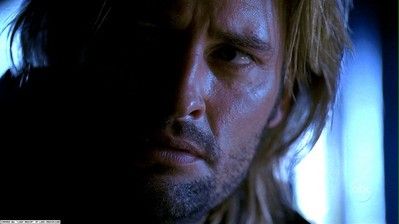
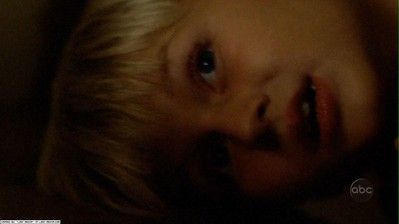

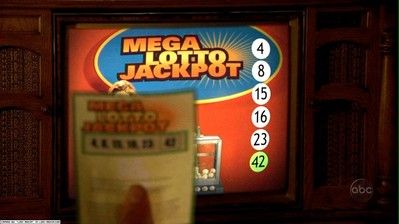
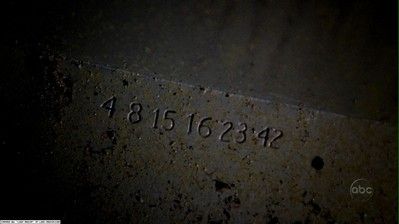
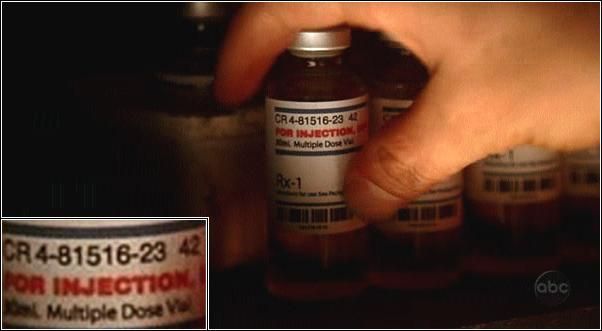

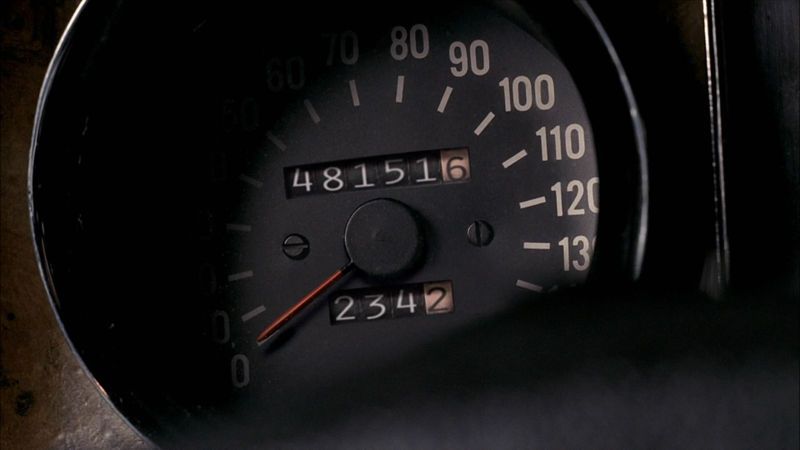
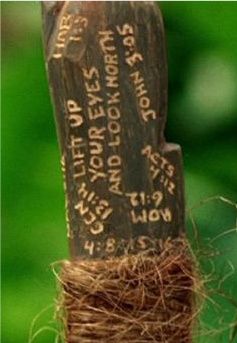
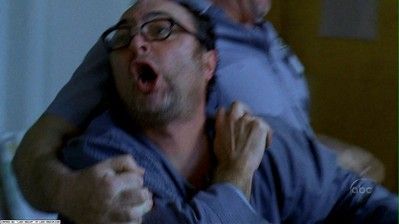

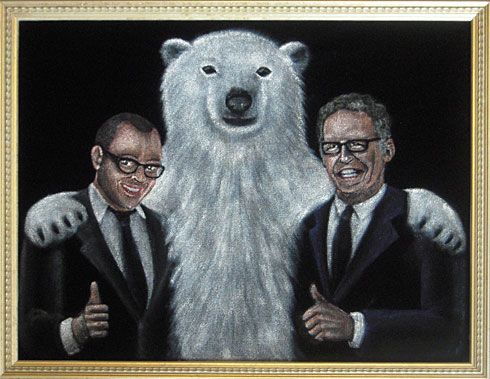

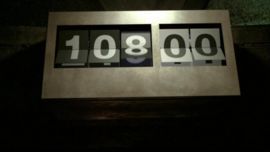
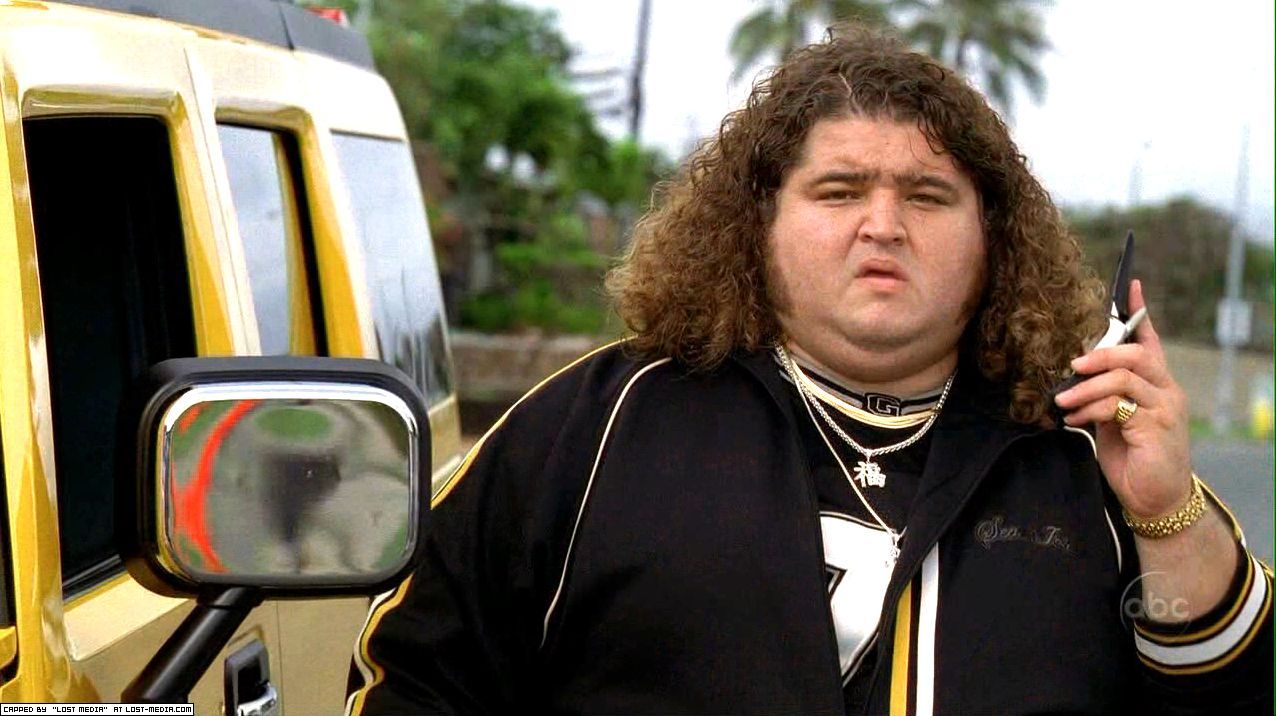

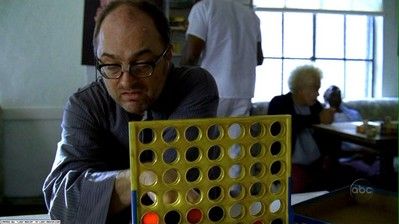
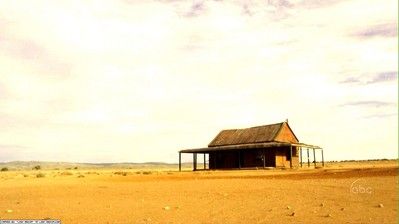
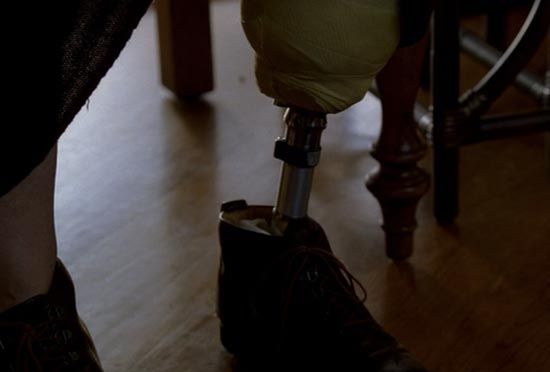
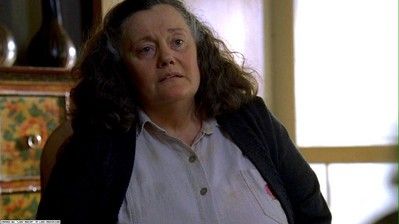
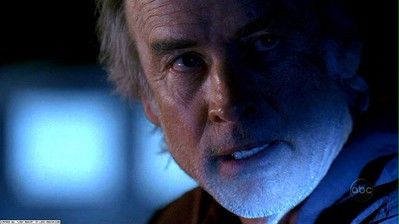
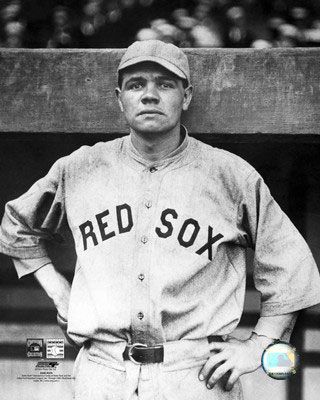
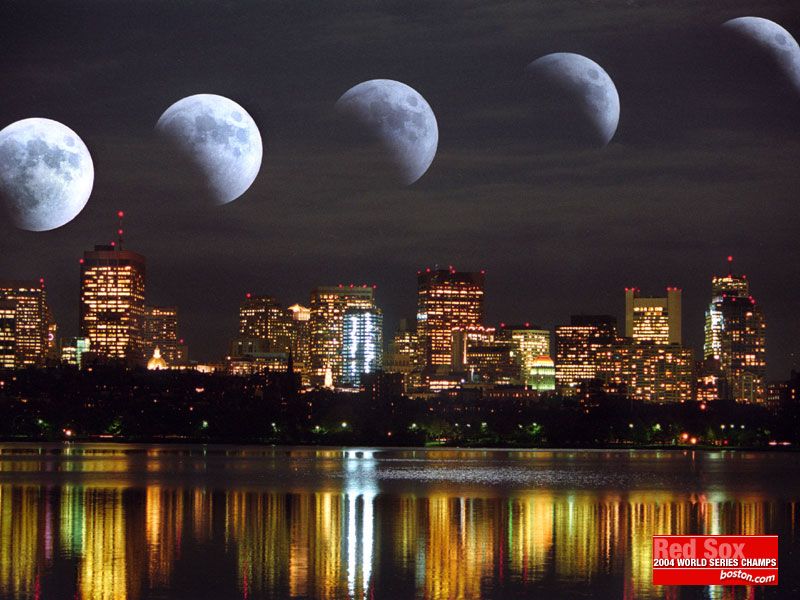
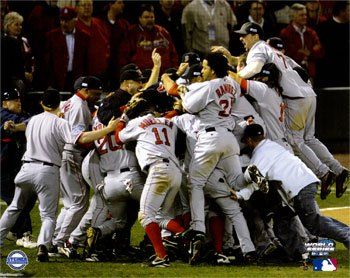
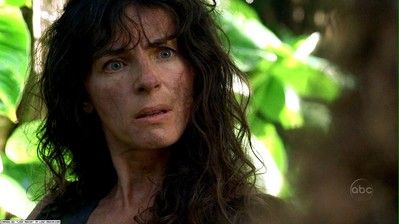
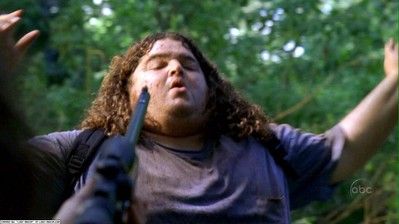
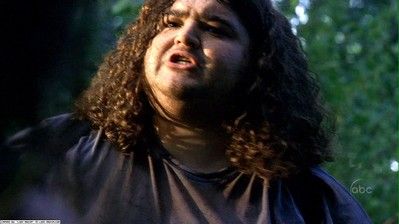
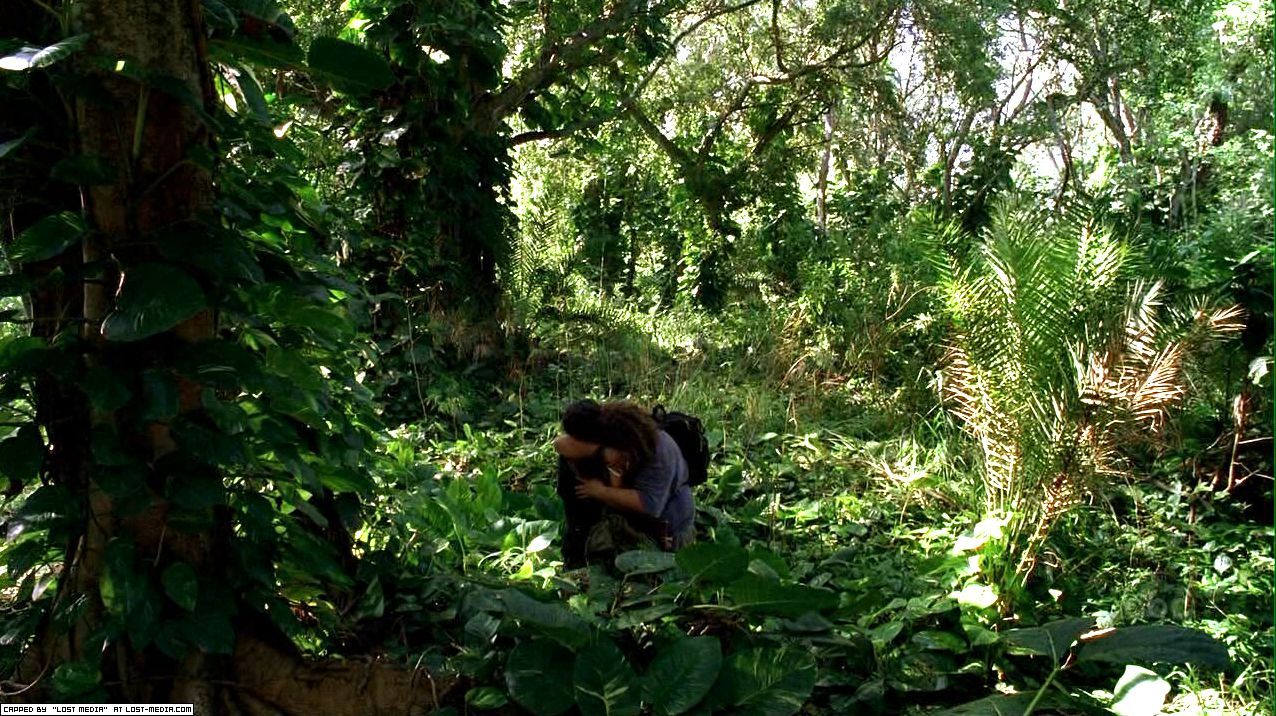
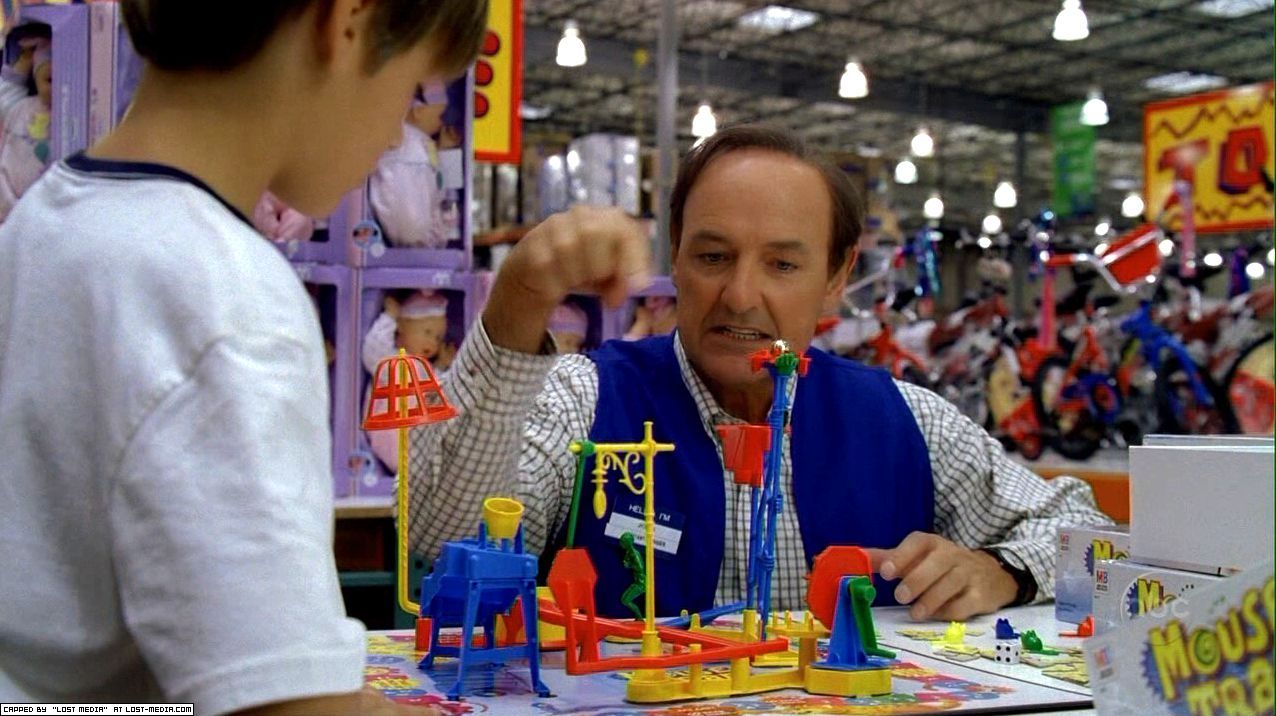
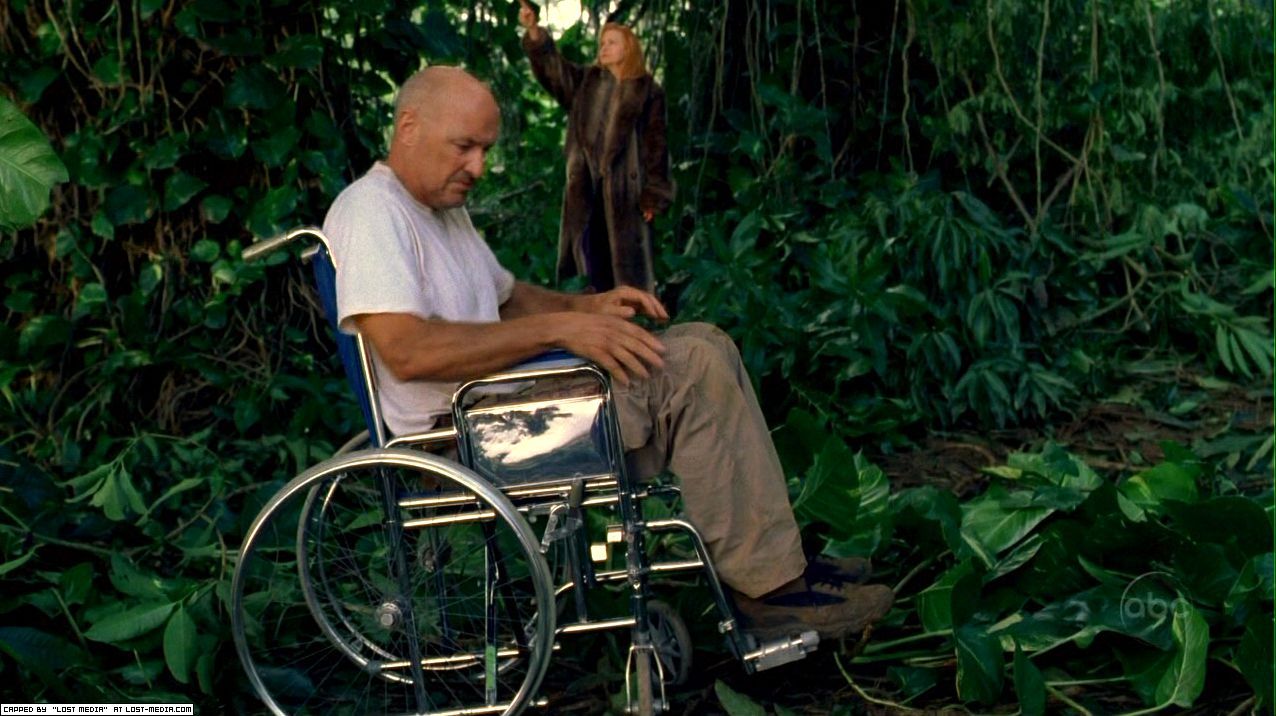
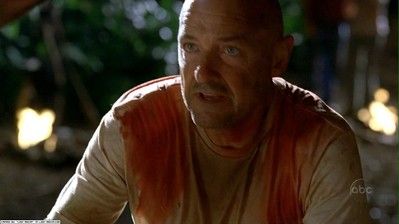
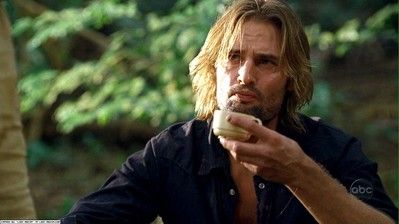
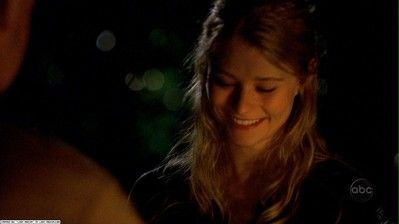
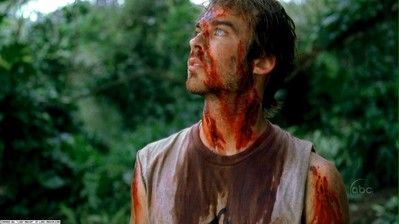
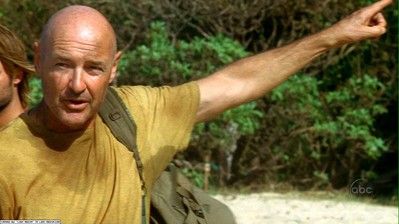
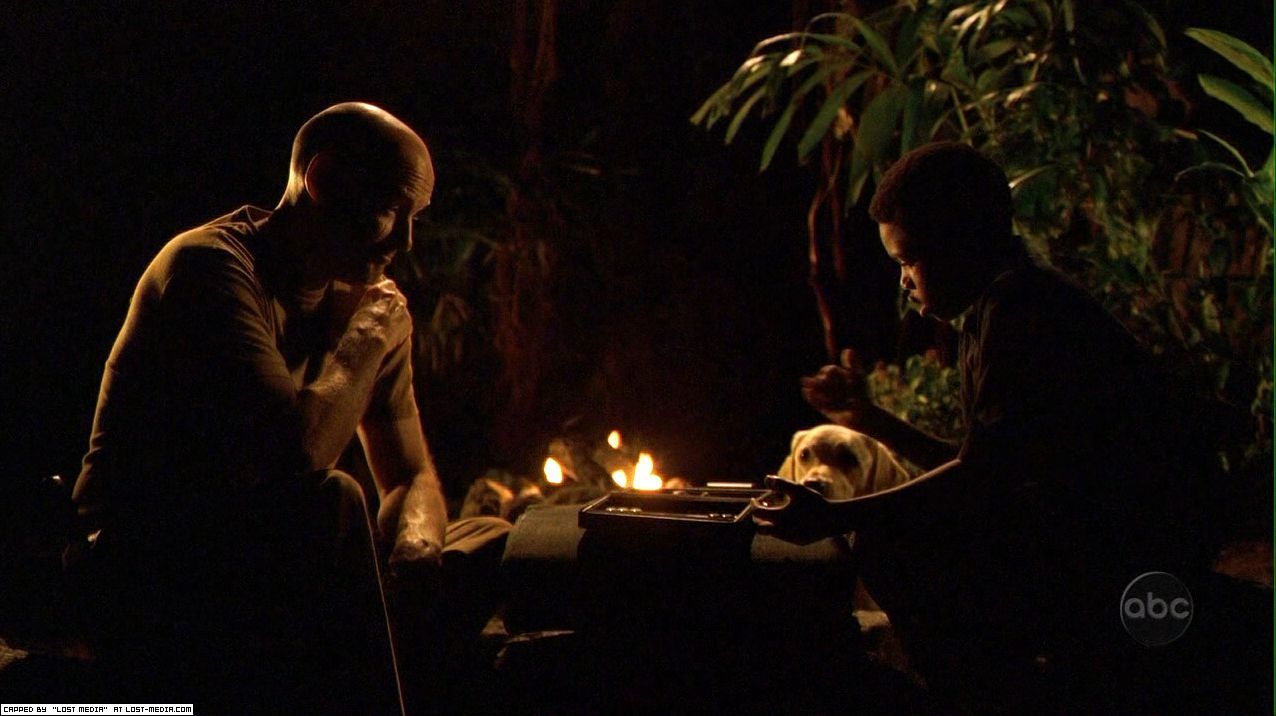
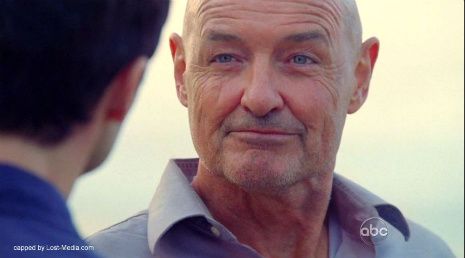
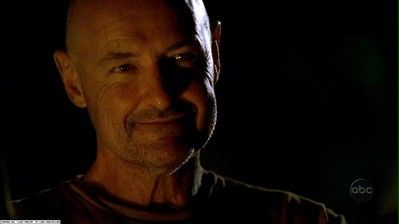
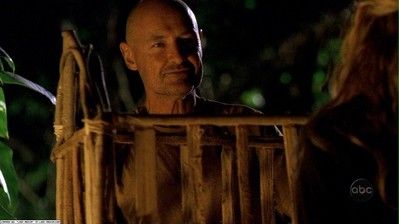
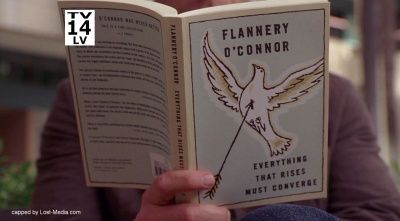
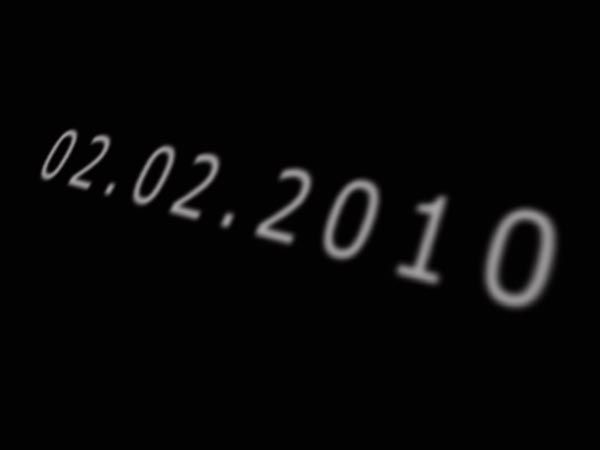

15 comments:
I think if you're expecting everything to be explained and for it to all come together, you're bound to be disappointed. If Jack has reset everything, then all the things you're going over with a fine tooth comb won't even have happened. It'll be erased. It's one of the reasons I had this whole reset concept. It's a cheap way to get out of explaining everything. Just like burning down the cabin was a cheap way to get out of explaining it.
In regards to Locke, I think like Danielle's crew, Claire and Cindy the stewardess, Locke was altered way back in Walkabout when he had his encounter in the jungle that he lied about. It was after that he became so all-knowing. He knew Charlie's guitar was hanging in the trees. He knew Jack was hanging from a cliff and needed saving.
In regards to Course Correction, it seems CC in the real world is at odd with the Others making sure whatever happened on the island happens:
In 2000 it appears Locke died when he fell out the window. Jacob brought him back to make whatever happened on the island happen.
Sayid may have also supposed to have died instead of Nadia in 2005. Why did Jacob need to distract Sayid so when the car hit Nadia, Sayid wasn't in the road? And since Jacob resurrected Locke, he could have done the same for Nadia, but if he had Sayid wouldn't have gone to work for Ben and wouldn't have been motivated to shoot Ben as a child if Nadia had lived.
In the real world, Sawyer wasn't supposed to ever finish that letter, quite possibly. He might have listened to his uncle and let it go and not ruined his life. But Jacob came to make sure Sawyer finished that letter, because the island has plans for Sawyer.
I really think you missed the true point in the Sawyer/Kate Jacob visits. The whole Tom/Kate relationship was an echo of Jack/Kate only in Jack/Kate Kate is Tom and Jack is Kate. While Sawyer is the only one who got visited while he was living on the island in 1976 and he was at his parents funeral in 1976.
The whole Tom/Kate relationship was an echo of Jack/Kate only in Jack/Kate Kate is Tom and Jack is Kate.
I hope you realize that makes no sense. Do you even know what you were trying to say?
I agree.It has nothing to do with Jack and Kate.
Amazing recap,Fish.As always.You make me melt when you talked about Outlaws.
YES...wonderful
Back to the numbers, there are 108 stitches on a baseball!
Nothing to add but thanks.
Please keep writing these, I'll keep telling everyone who will listen.
I get so sick of these damn cherrypicker recappers who only focus on what they like and ignore the rest, instead of looking at the whole marvelous tapestry that is Lost.
So it's always a pleasure to read your wonderful recaps, you cover everyone and everything, even characters you don't like. Keep up the excellent work!
"If Damon ever doubted the OCD level of apophenia in this fandom, he shouldn't have."
Bwahaha...so true.
"We've gotten so hyper-connected within this convolvulating story that the connections no longer help us find our way. They only leave us more lost than ever, on shakier and shakier ground."
The Tapestry is so complicated now, that "how can they hear the truth above the roar?"
"Locke was so tapped into the Island grapevine by this point, he was even giving advice to Shannon on her love life."
Hahaha! The look on Shannon's face is classic in that screen capture.
"Boone knew Locke was pretty much batshit insane. Still he couldn't help but absorb some of his rabid intensity. It was all SO clear to Locke. Maybe it was that certainty alone that convinced Boone to follow his leader. Straight over a cliff."
I love how you distill the essence of this show into short paragraphs like this one...
I couldn't care less about the numbers. Damon Lindelof's explanations are good enough for me. I loved "...in Translation," and of course the Sawyer episodes.
Thank you, that was thoroughly interesting. I had never connected the man falling outside Hurley's advisor's window with Locke's fall before! (Admittedly, in that screencap, it looks as if the falling man has a head of dark hair, but I'm going to give them a pass on that.) You're great at picking up those apparent loose ends that I don't always connect because they appeared a long time apart in the show's run.
I usually switch off a bit when you talk about Sawyer and Kate, because I'm generally more interested in the plot than in their romance, but I really enjoyed your analysis/questioning in this post of why and how Jacob brought them to the island, particularly by setting a bad example to Kate and reinforcing Sawyer's trauma. I hope more will be revealed to make sense of that.
Apropos of almost nothing, the shot of Sawyer's father's boots as seen from under the bed reminded me of the only time we see the vengeful trucker in the excellent early Spielberg movie Duel - his cowboy boots and jeans-clad legs viewed through the space under his truck. I think these two shots have combined to make me immediately wary of cowboy boots! (In my head, the trucker is played by John Wayne.)
I must confess I'm hoping that you will continue with Season Two... although I can certainly forgive you if you don't feel like pushing through the mess of Season Three again.
I don't think Locke knew it was Claire's birthday, he looked surprised and asked why she did say sooner, so his project conveniently doubled as a present...
Wonderful review as usual though!
Thank you very much - these are the best recaps. I love your analysis of Sawyer and Kate.
comeon fish I'm missing you here
Come on Fish...bring it on! Waiting anxiously for your next post.
Locke says he's good at putting together 'bits and pieces'. Perhaps in Season 6 it all starts over again, and Locke is the only one with partial memories of what happened before. That would explain how he knew so much so fast about the island.
Also, perhaps all or some of them come back as the 'Whispers'. Only Sawyer knew the 'It will come back around' phrase. Perhaps he says it to himself, perhaps he has to reconnect his past and present at that's the only way he knows how.
One last theory: Richard. All the losties are in a time loop, but they are young and get old. Perhaps Jacob upon meeting Richard, saw he was wise and gave him an option: do as the Losties, or stay forever young and stay in a continuous forward moving timeline. Note how Richard is not familiar with island/time skipping last season.
OK, one more thing: we never see where Richard lives in Othersville. Is there a slight chance he is the smoke monster? Ben did meet him first in the forest. It was a random thought I had last night that kept me from going to sleep...
Hello, an amazing Information dude. Thanks for sharing this nice information with us. Neck Pain Kalgoorlie
Post a Comment